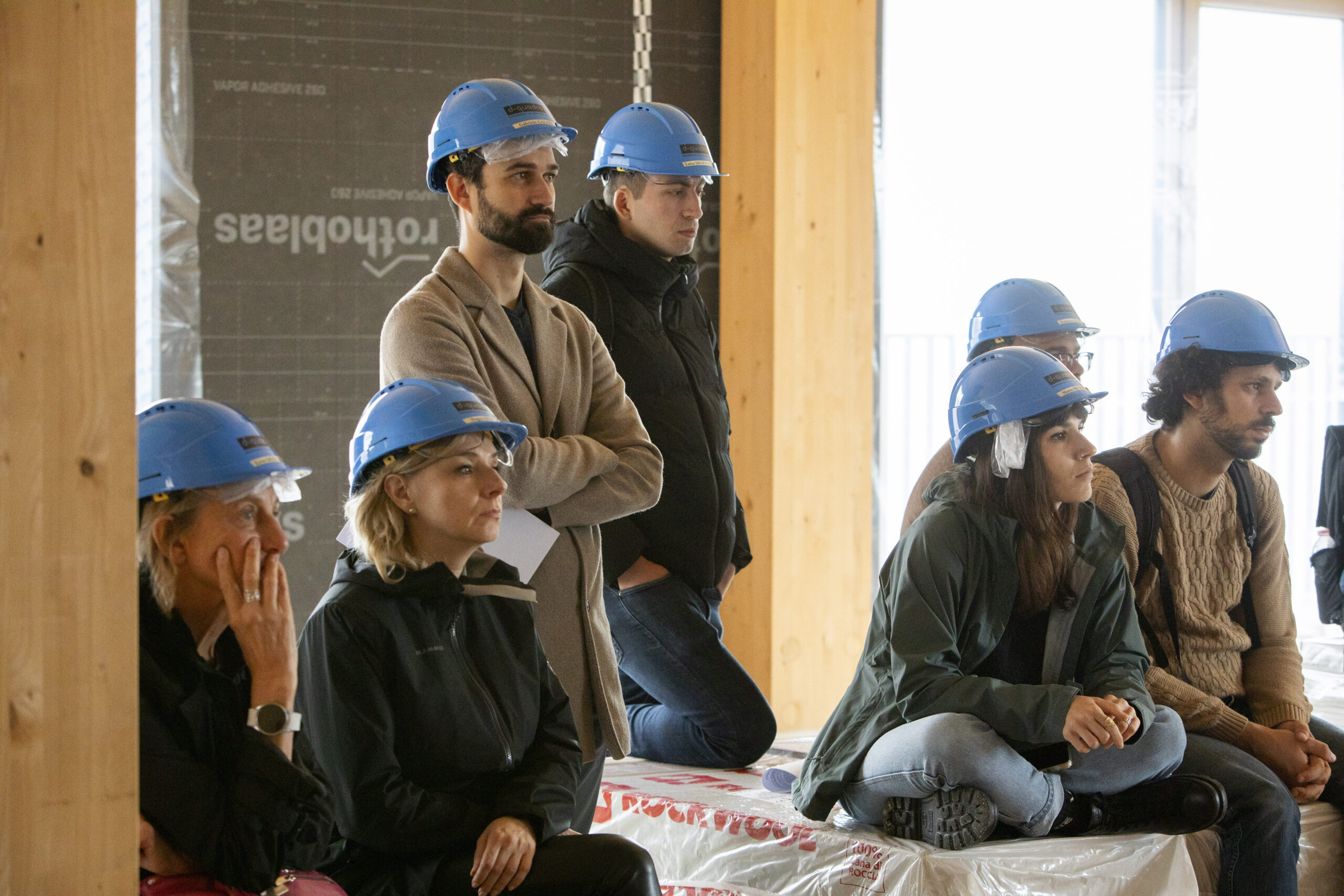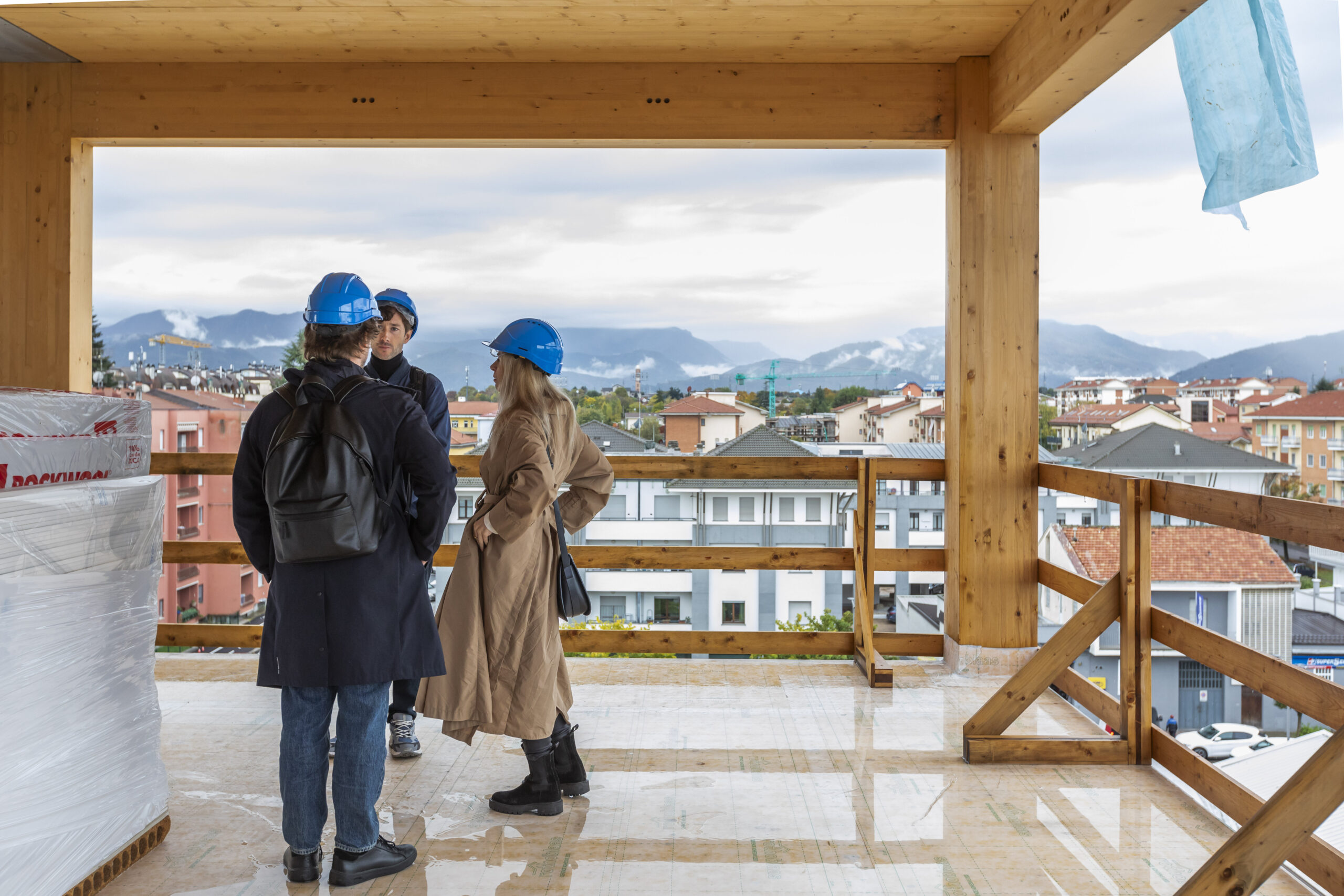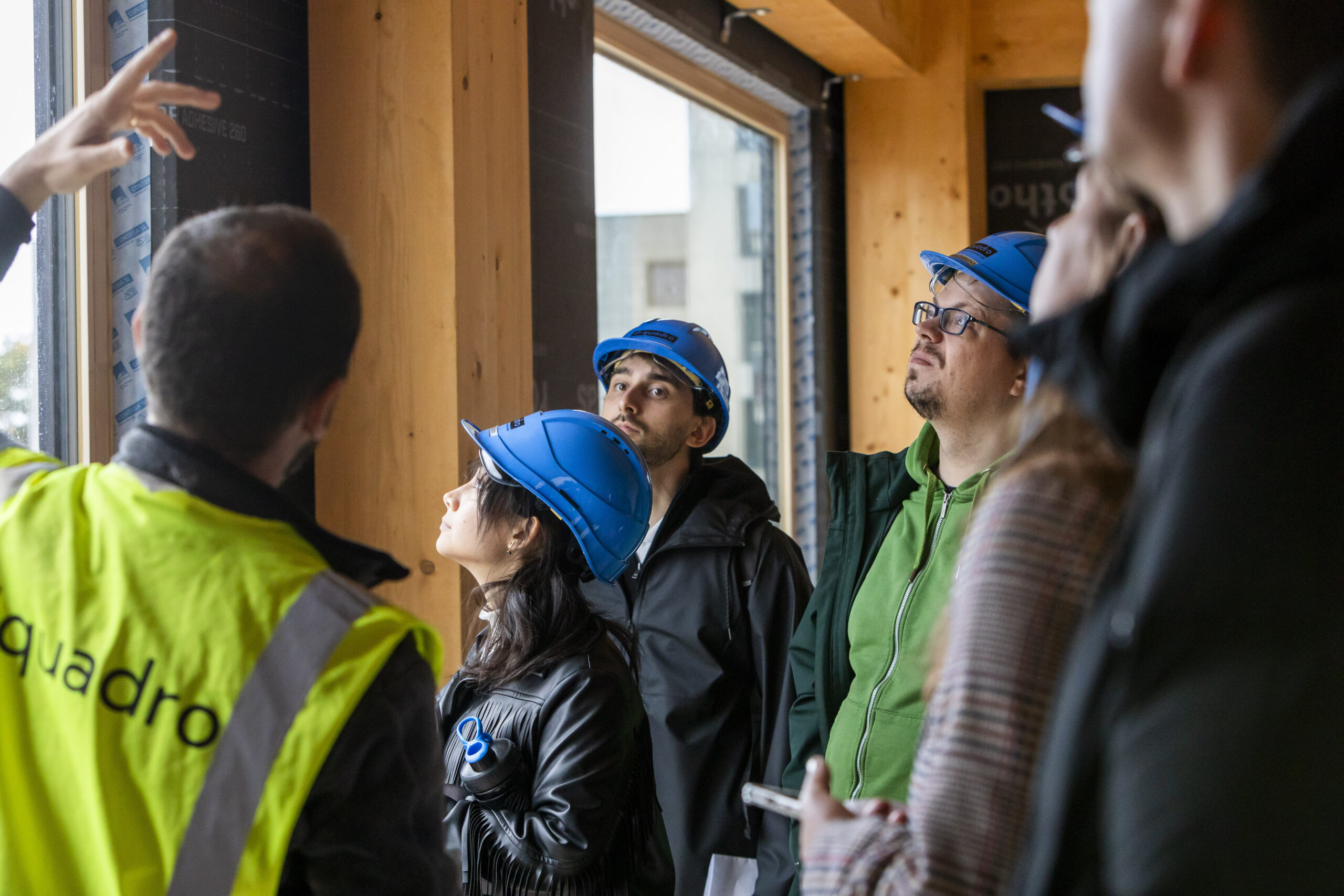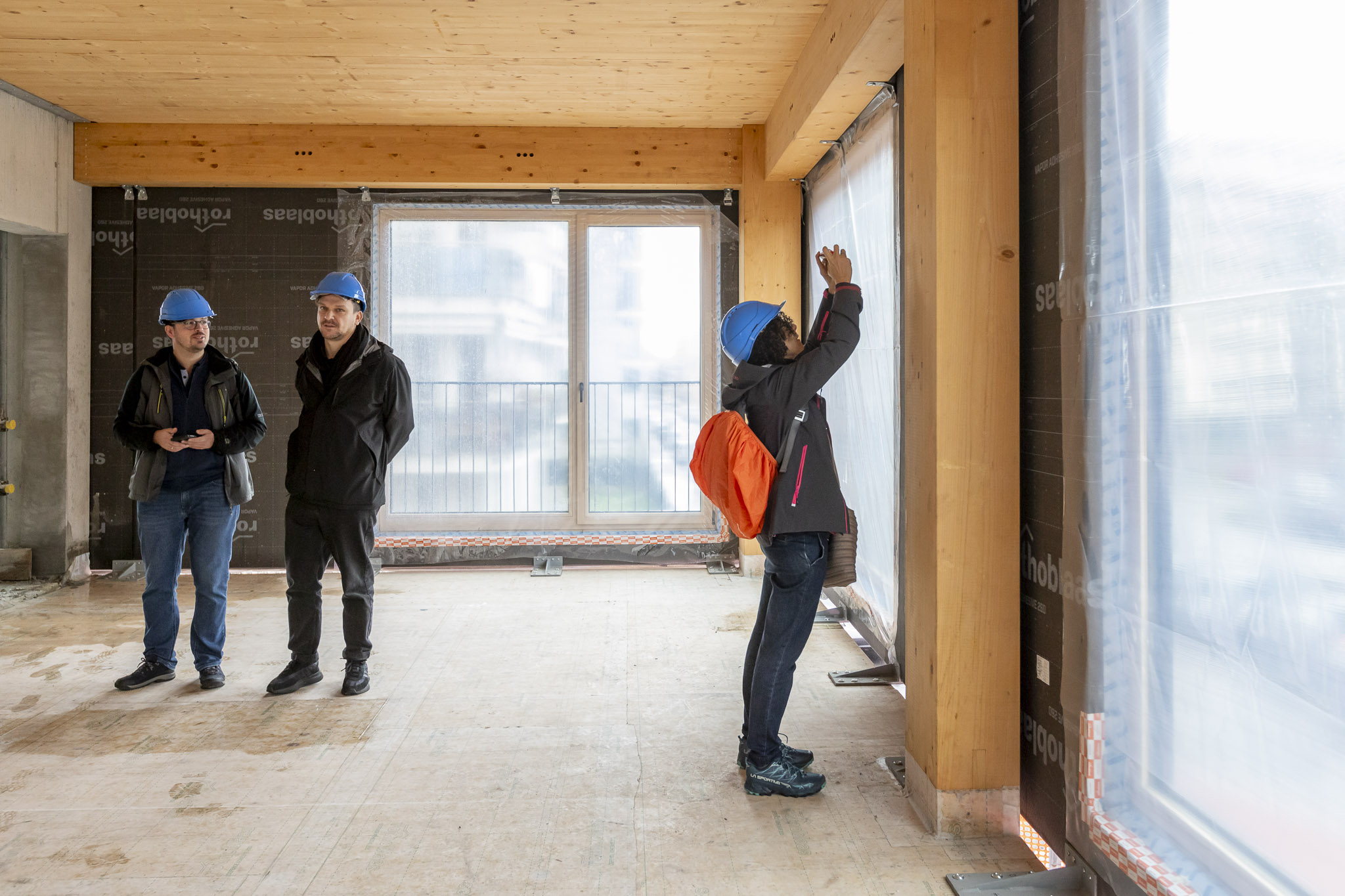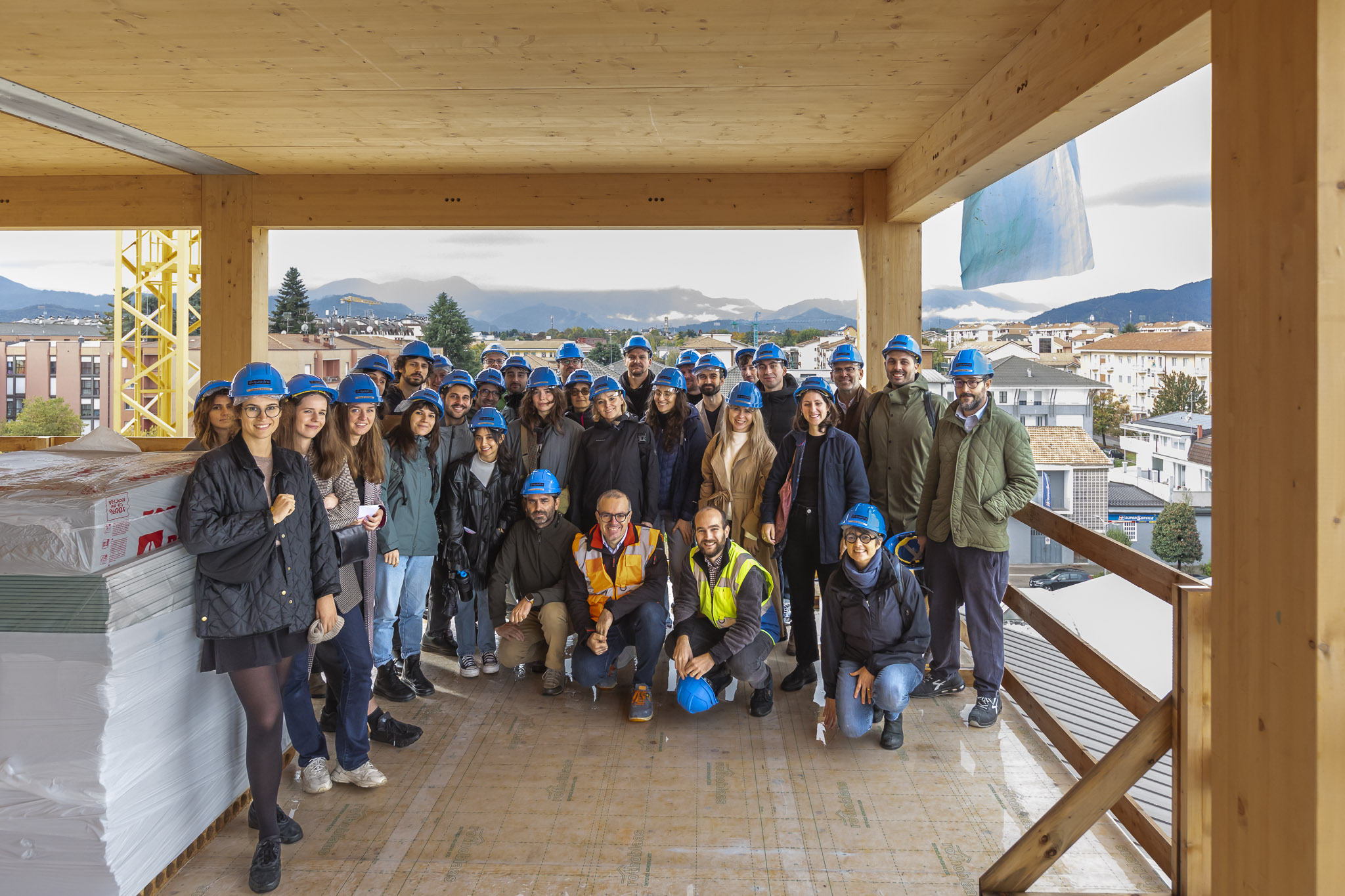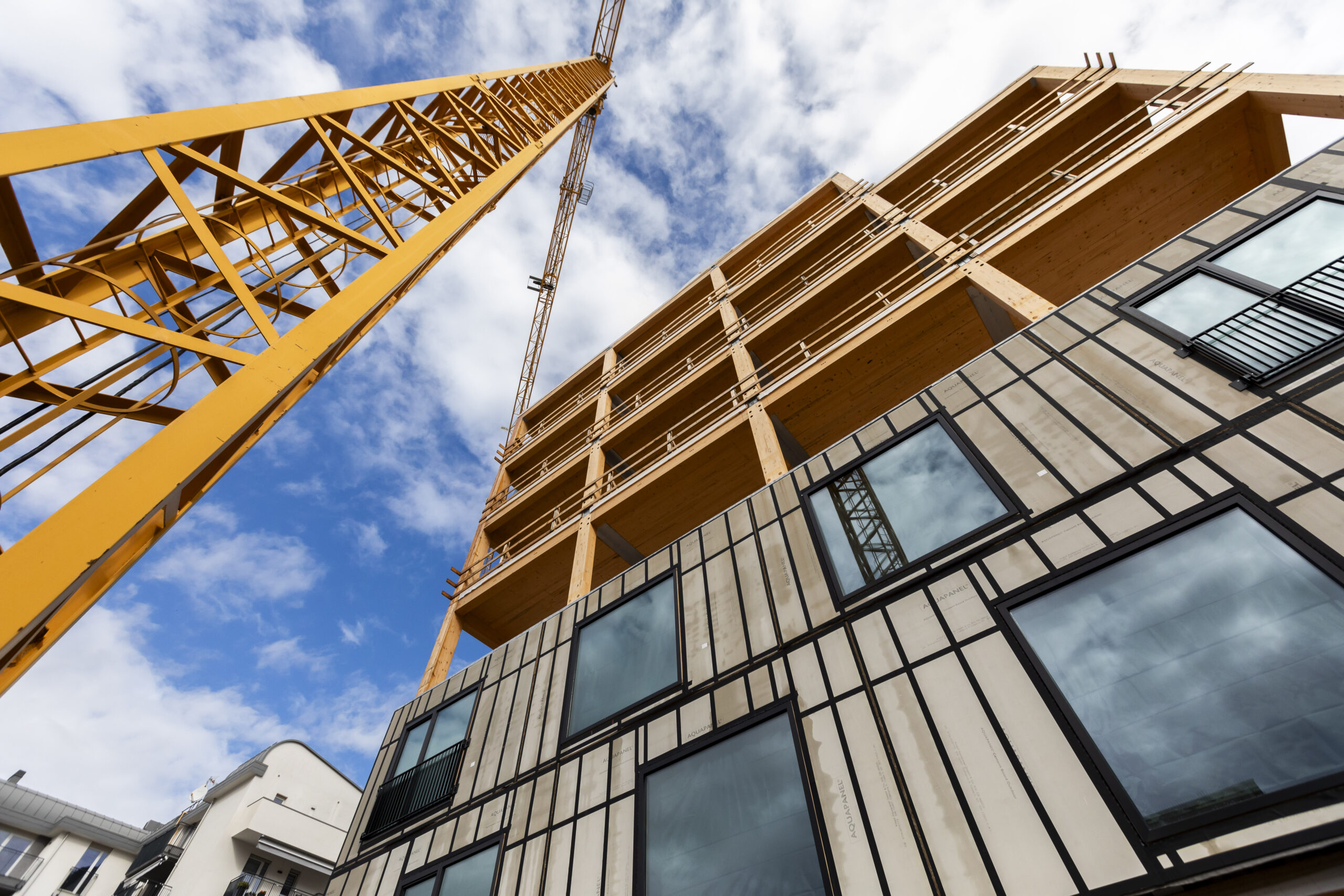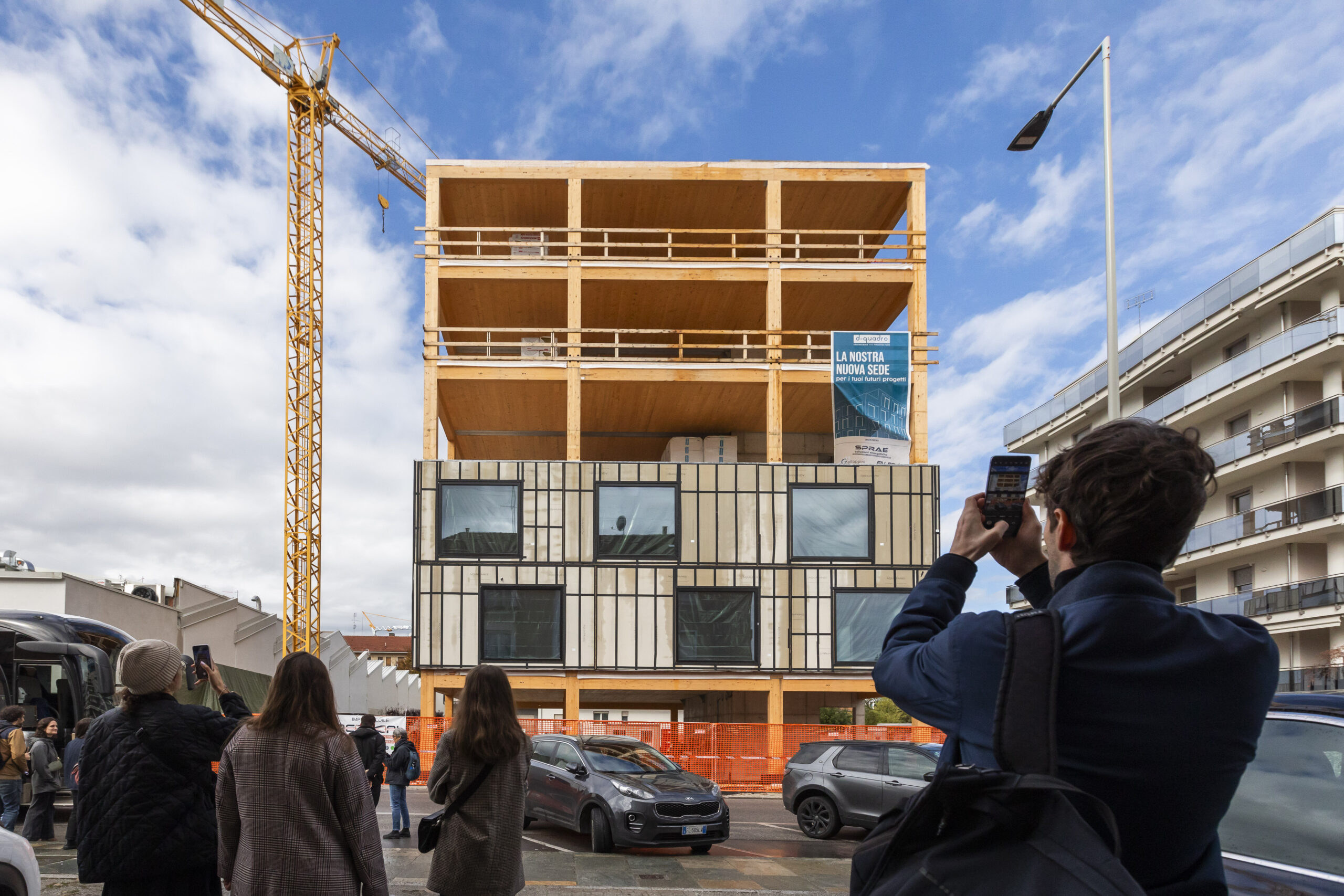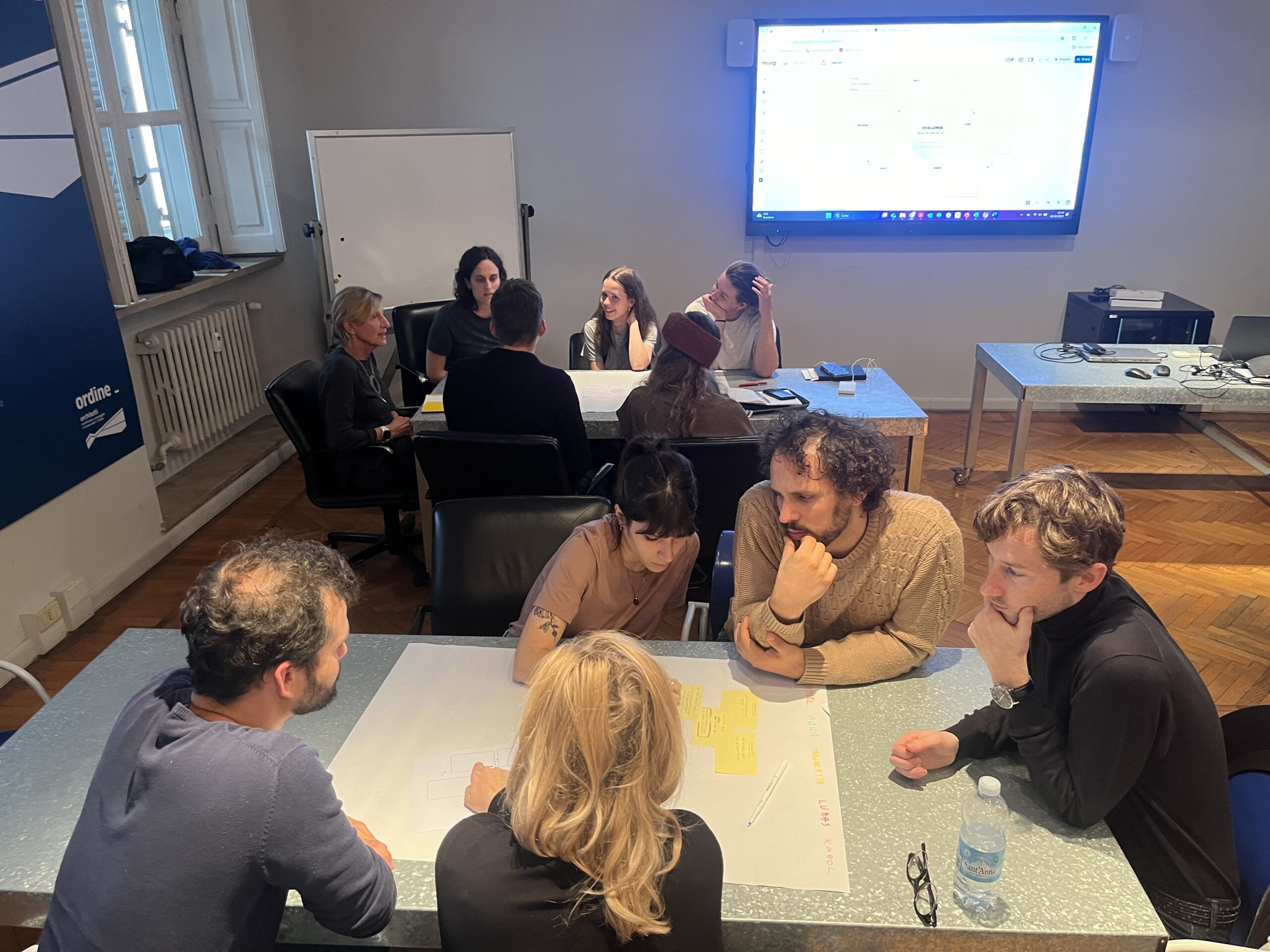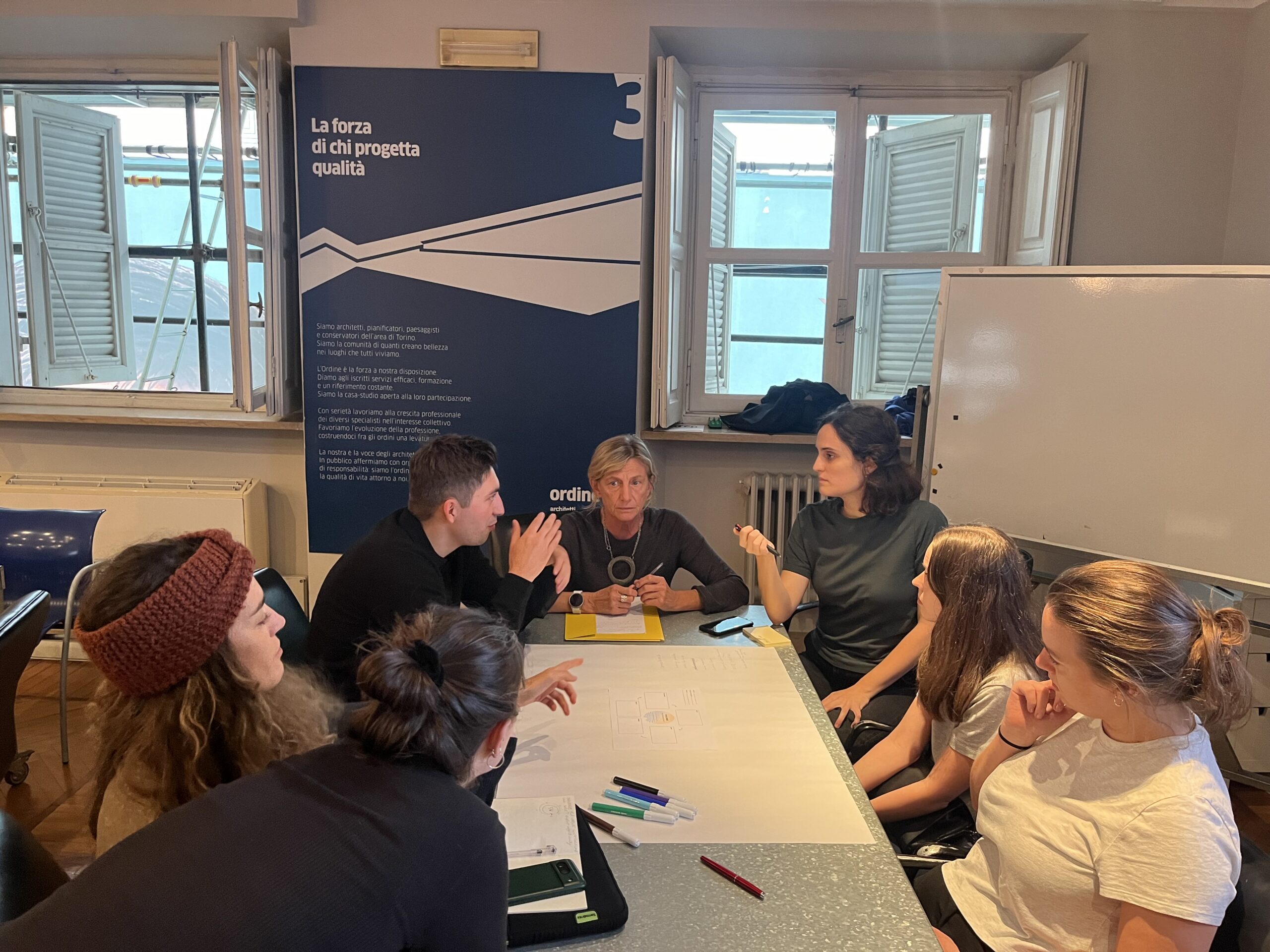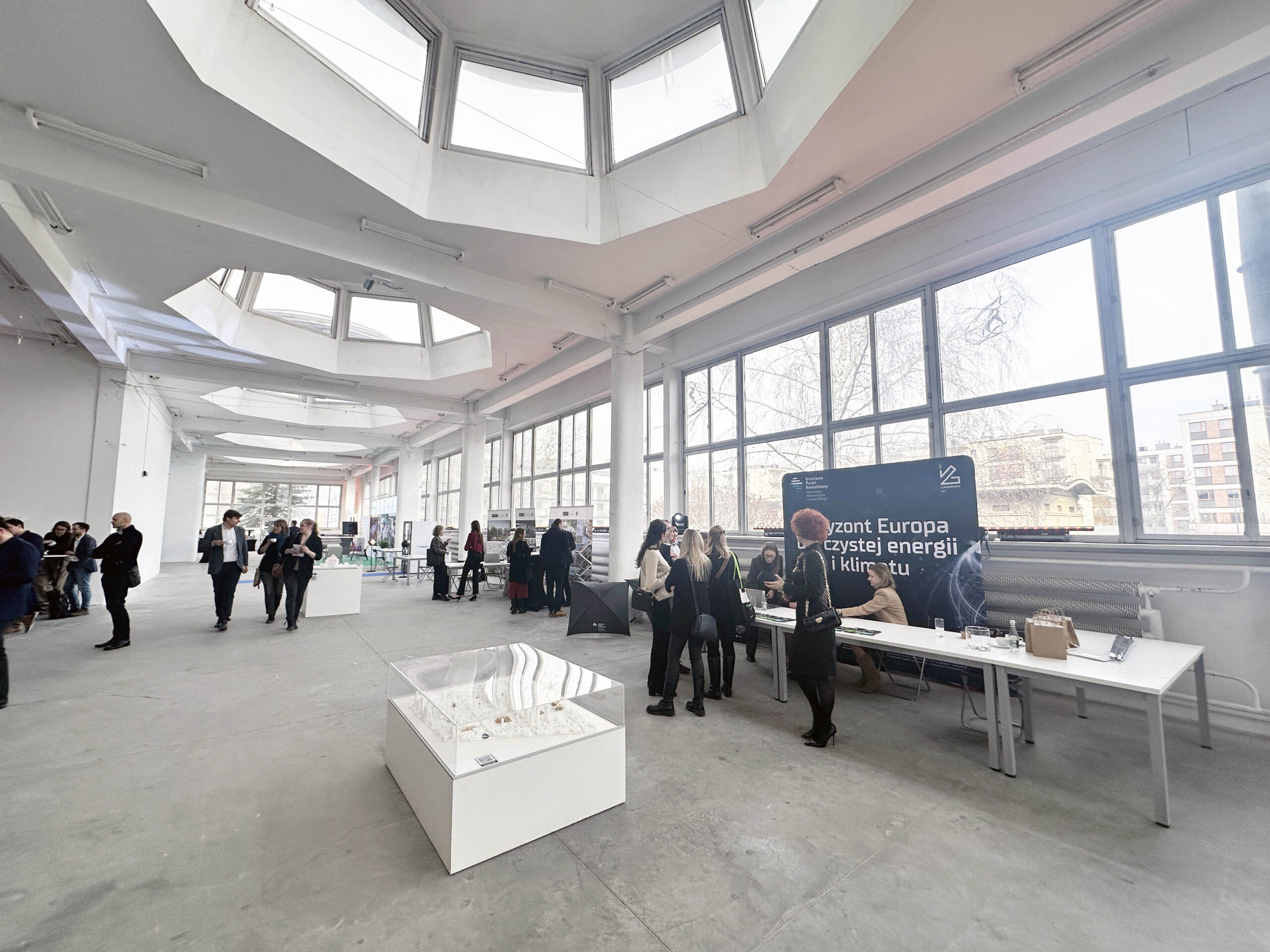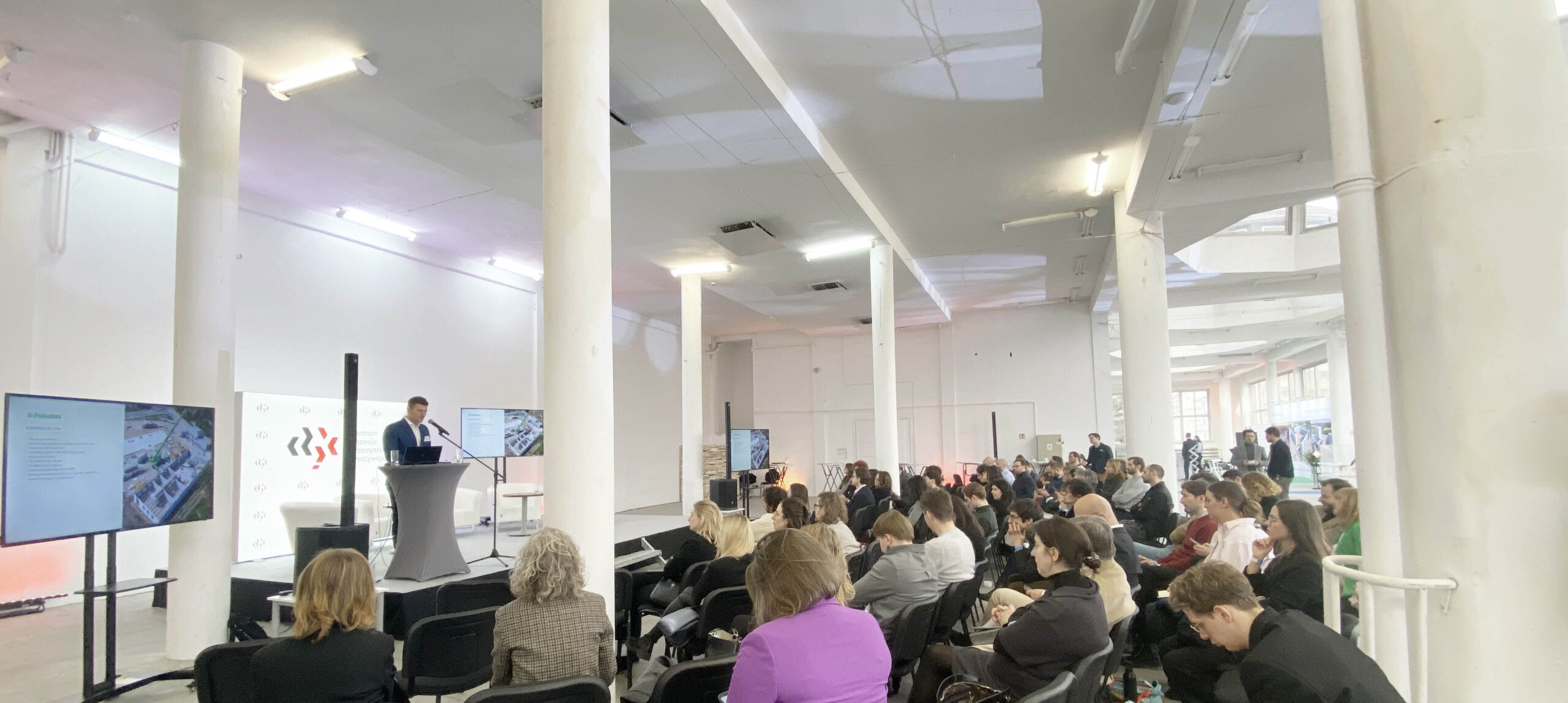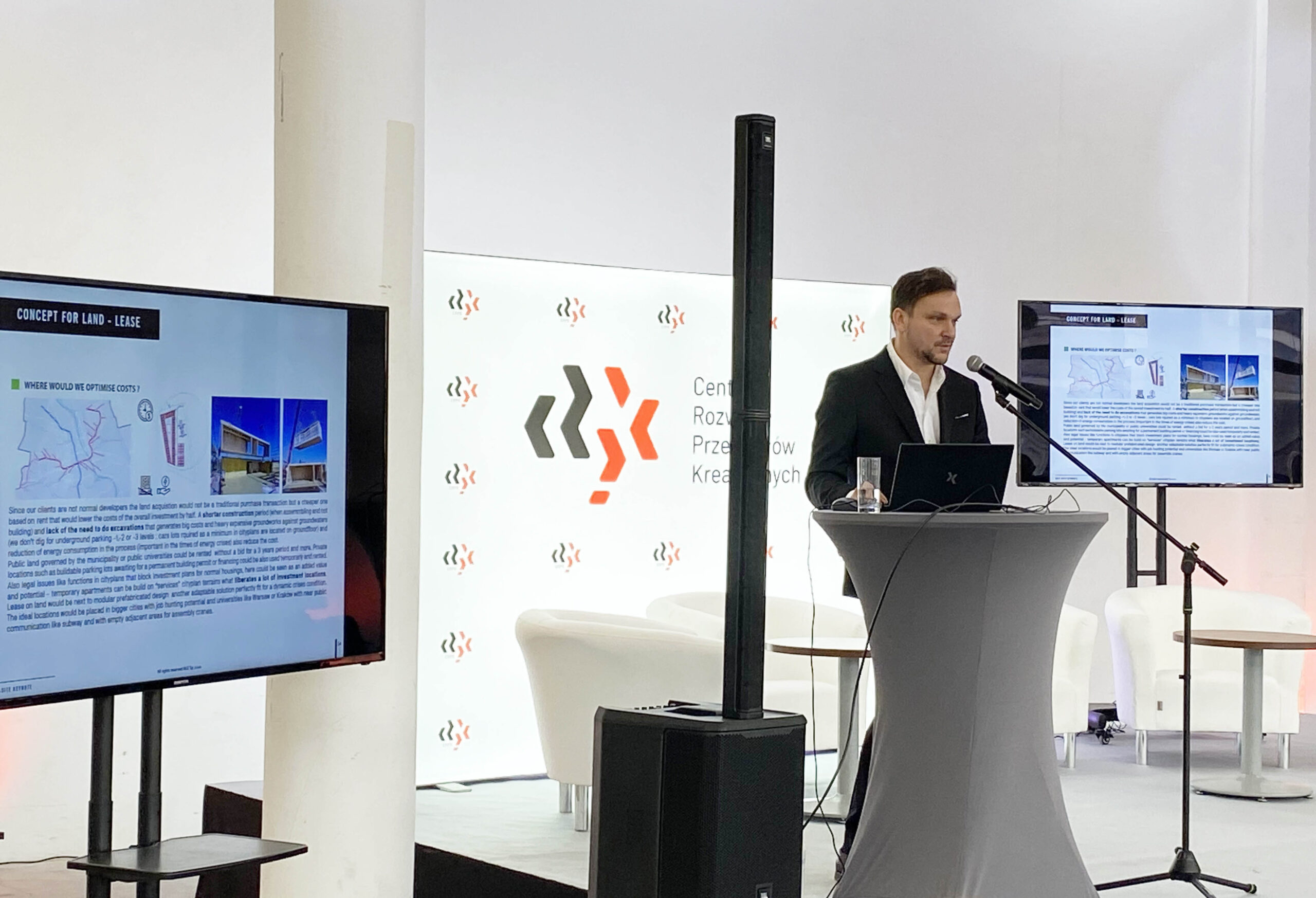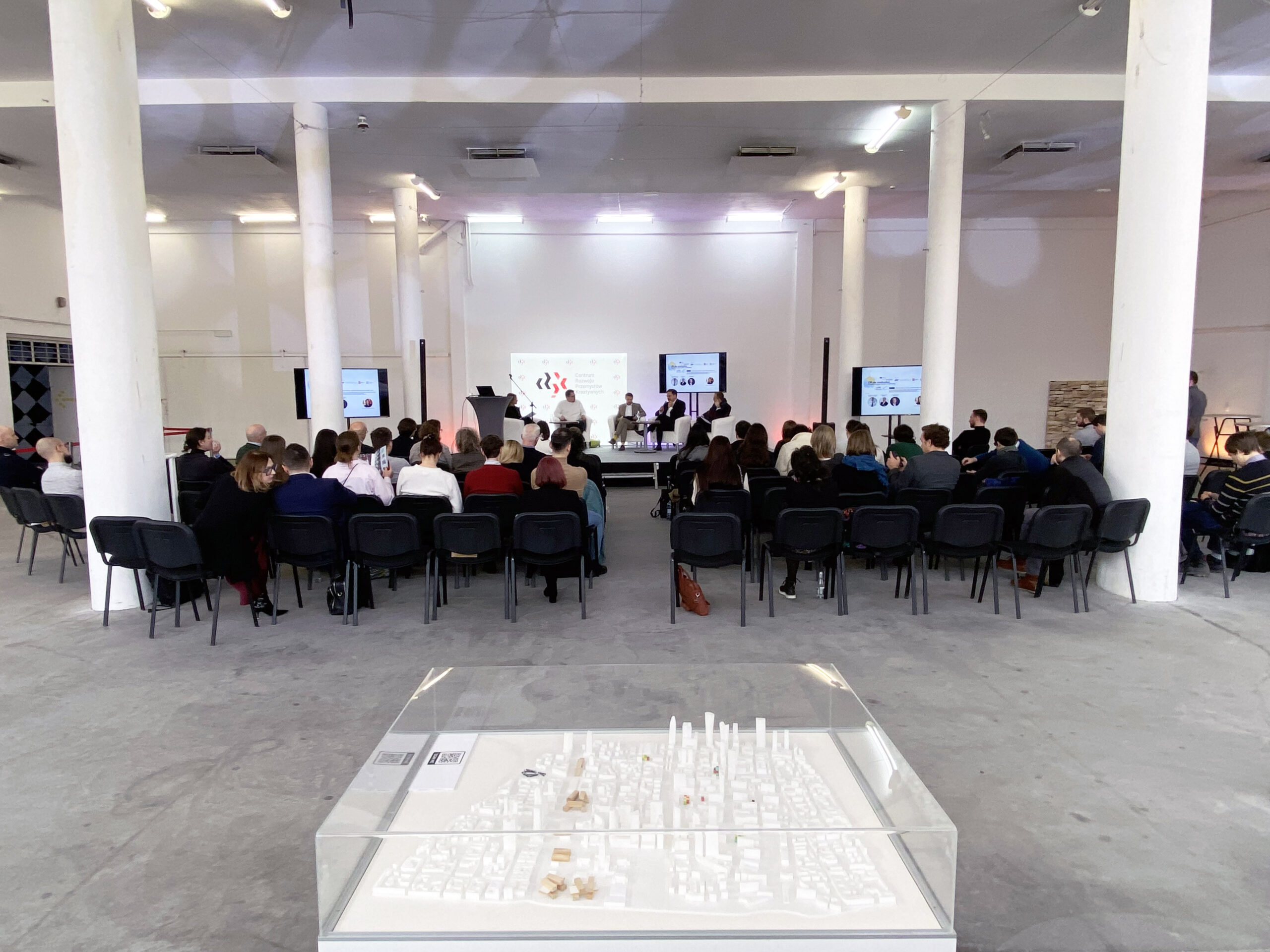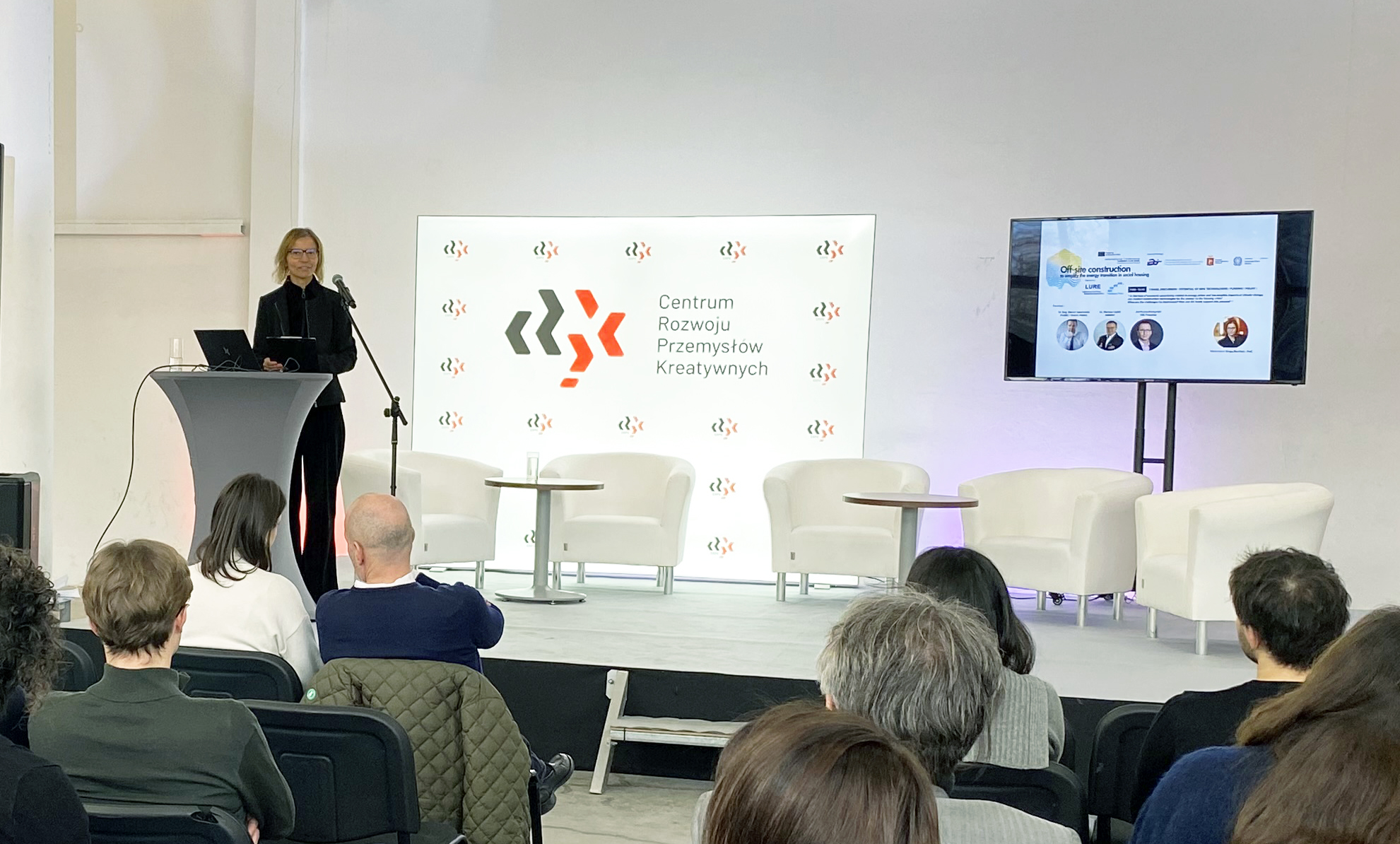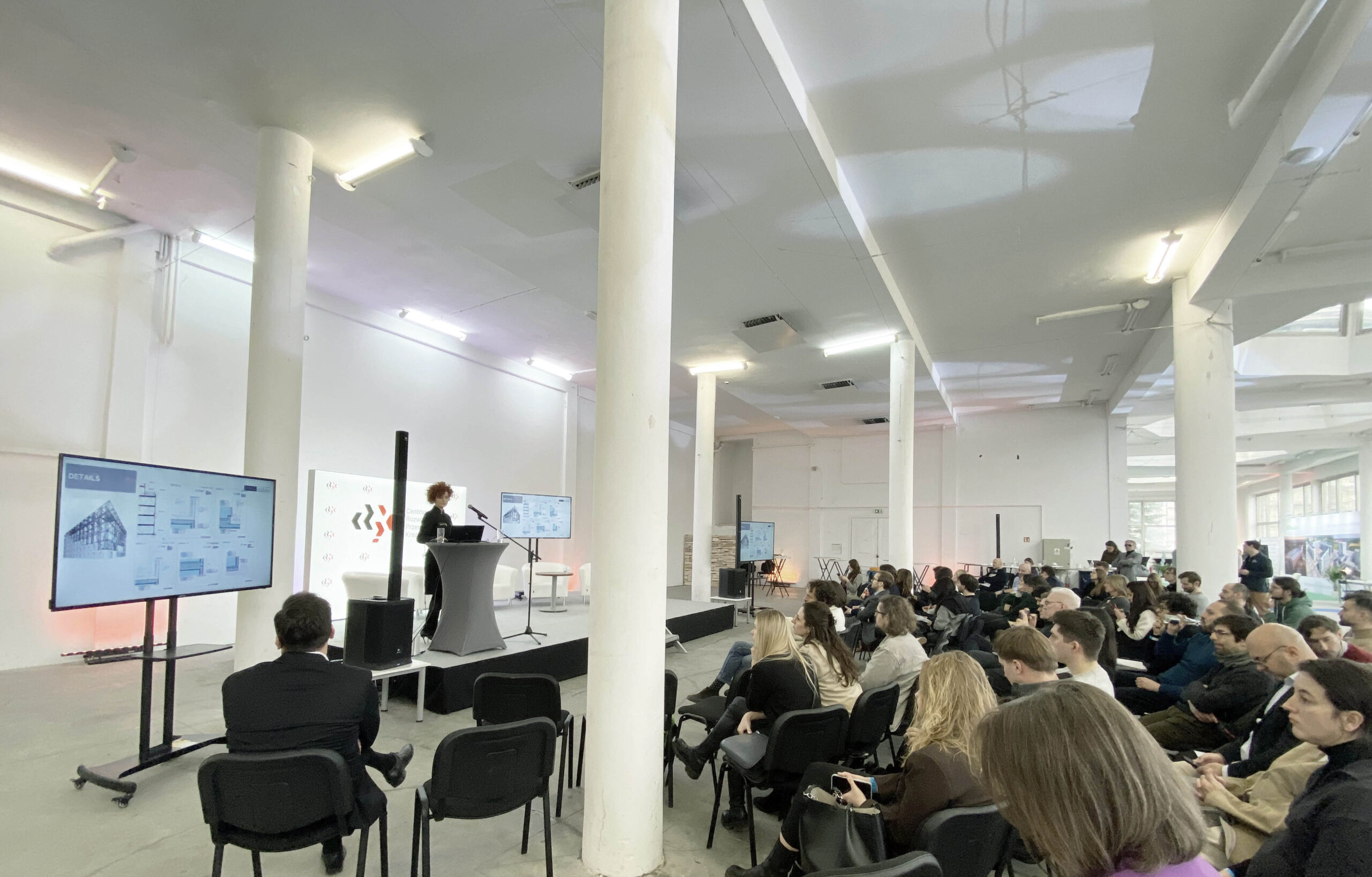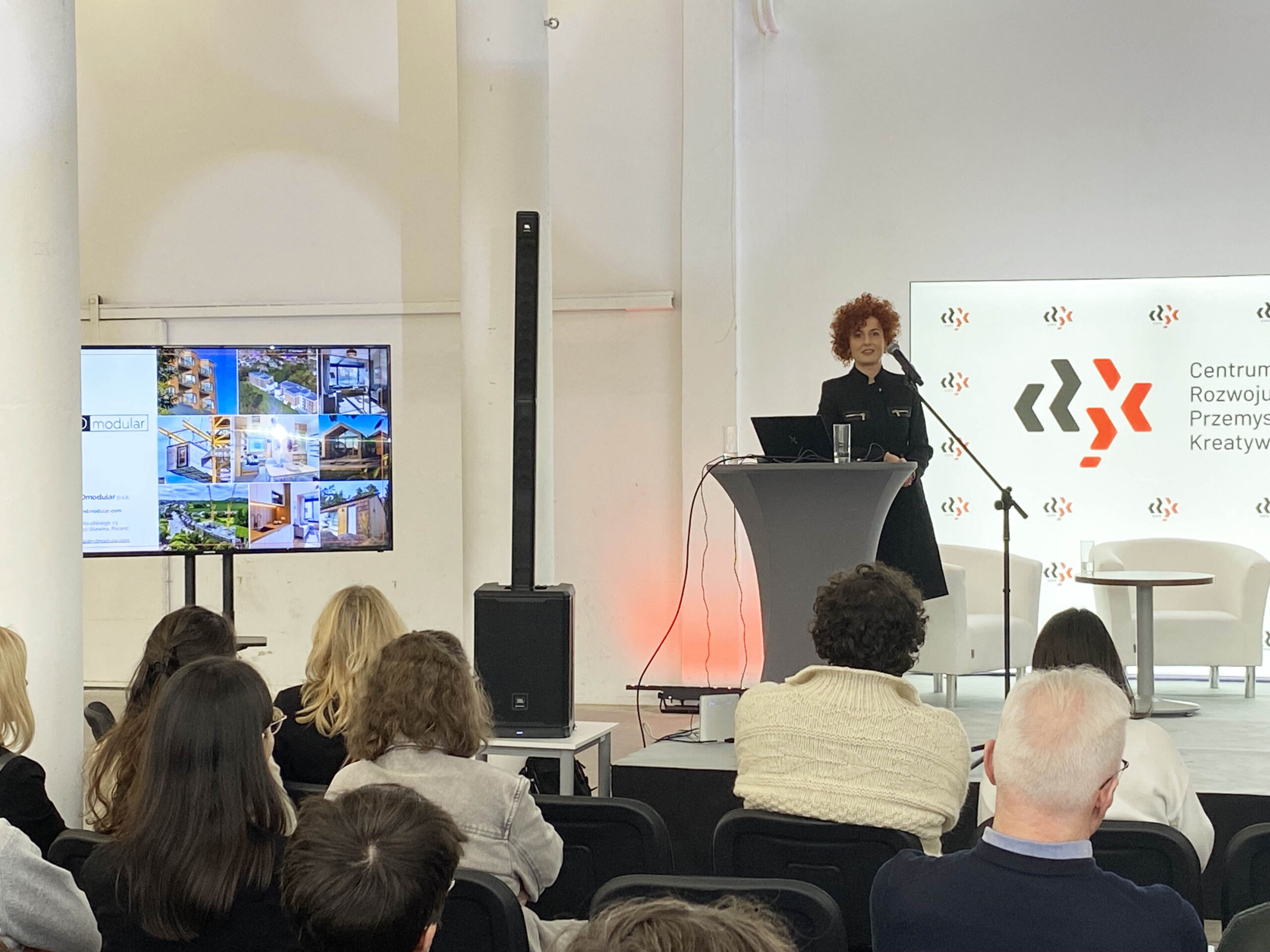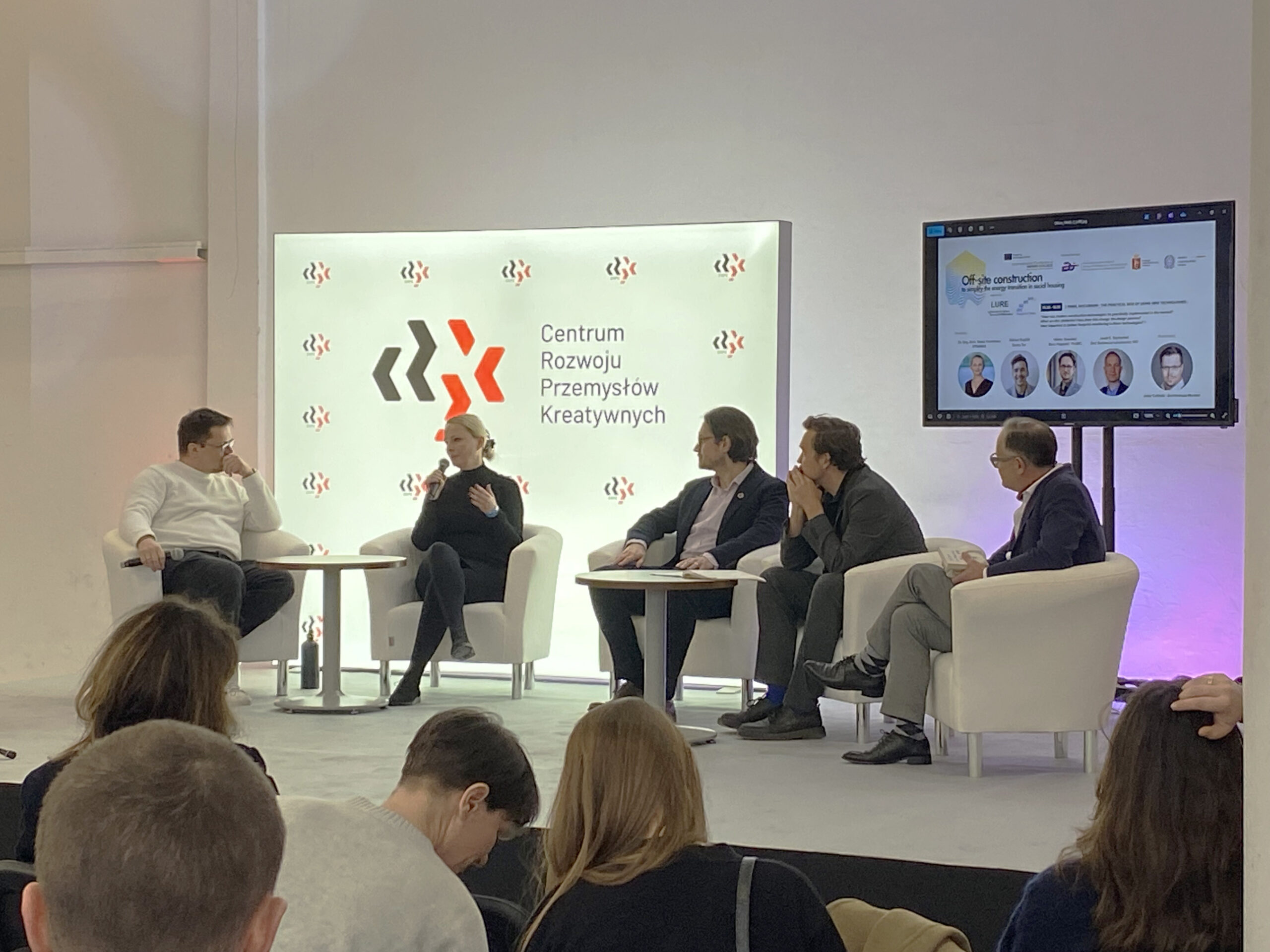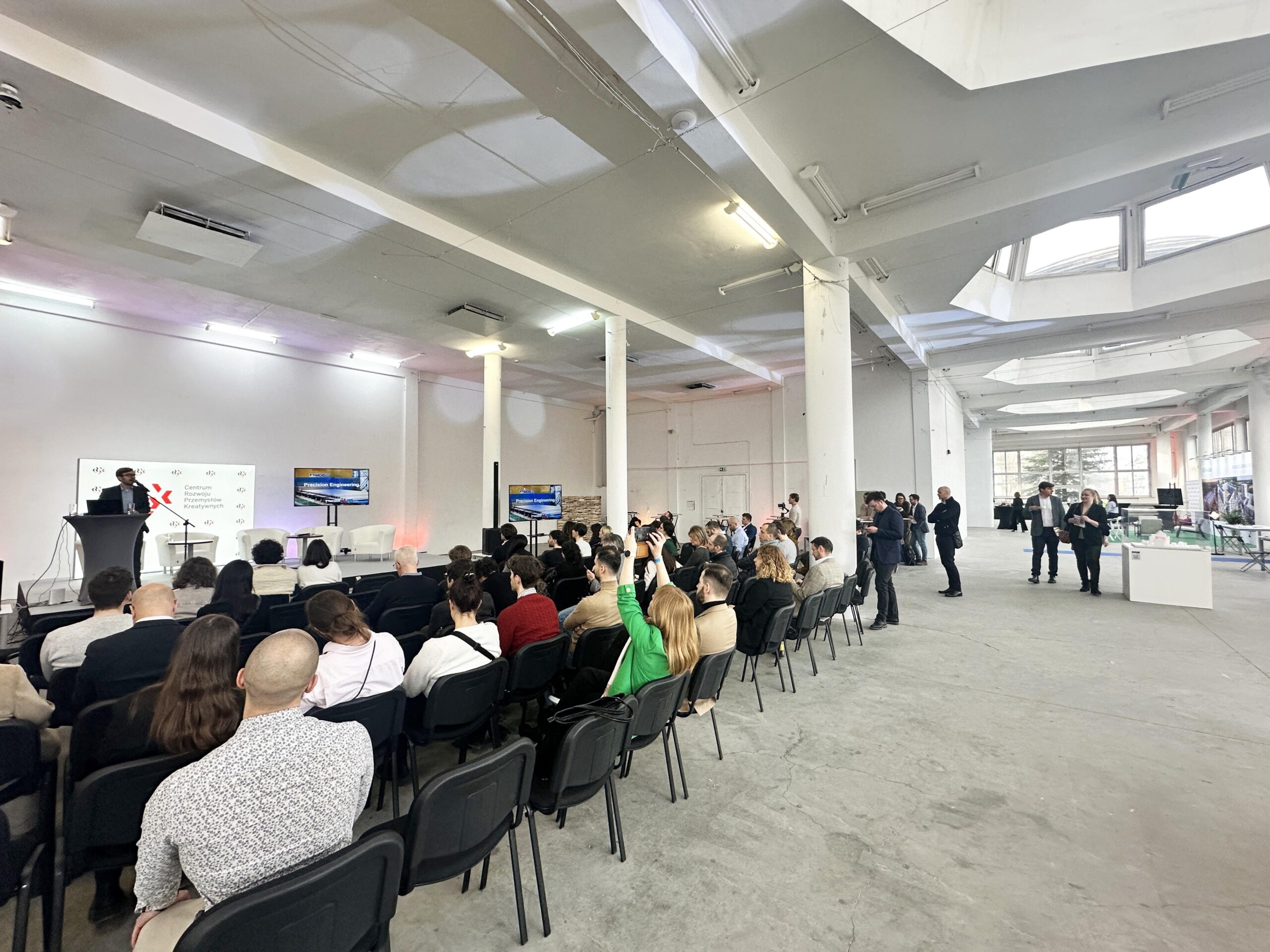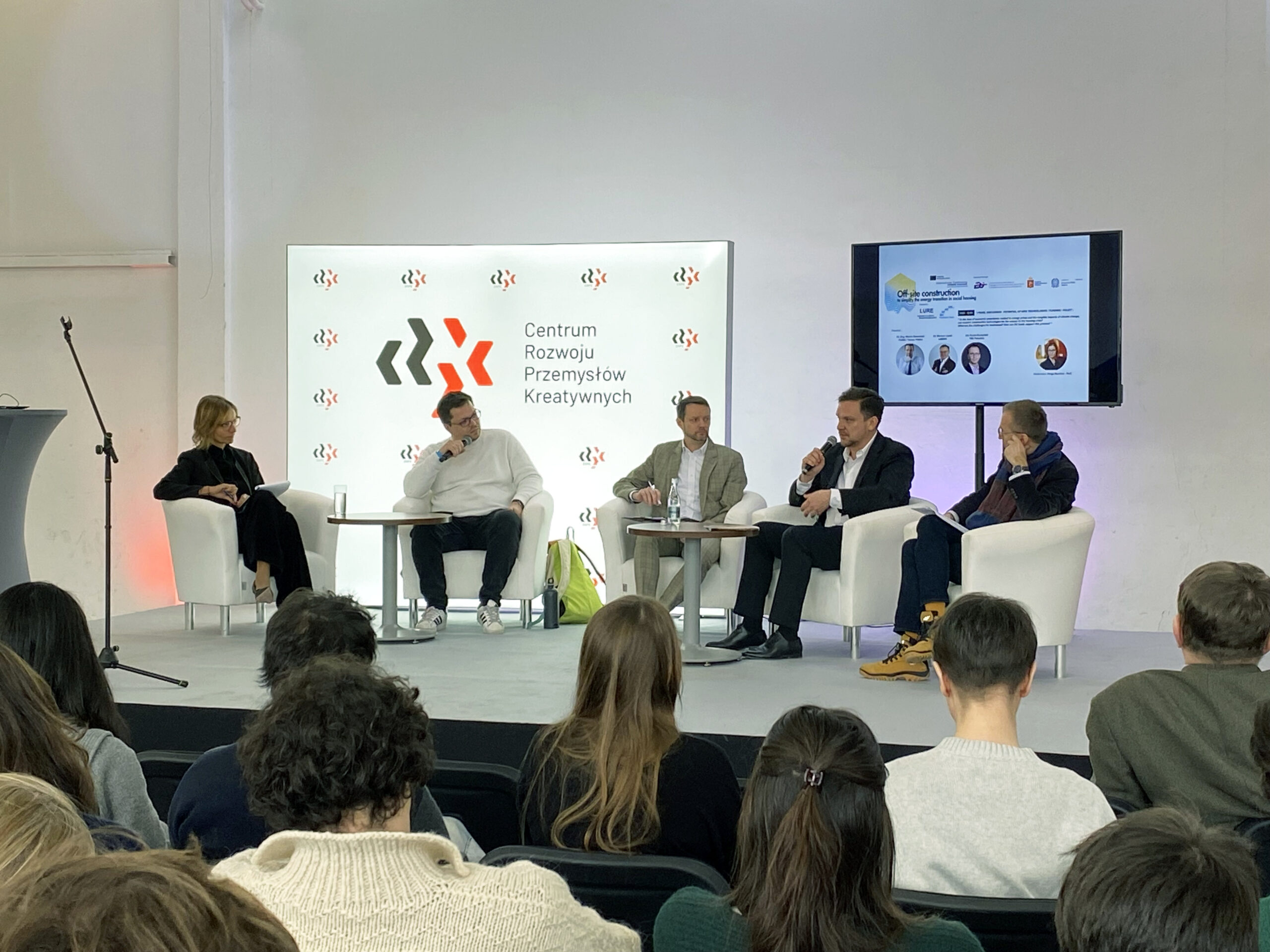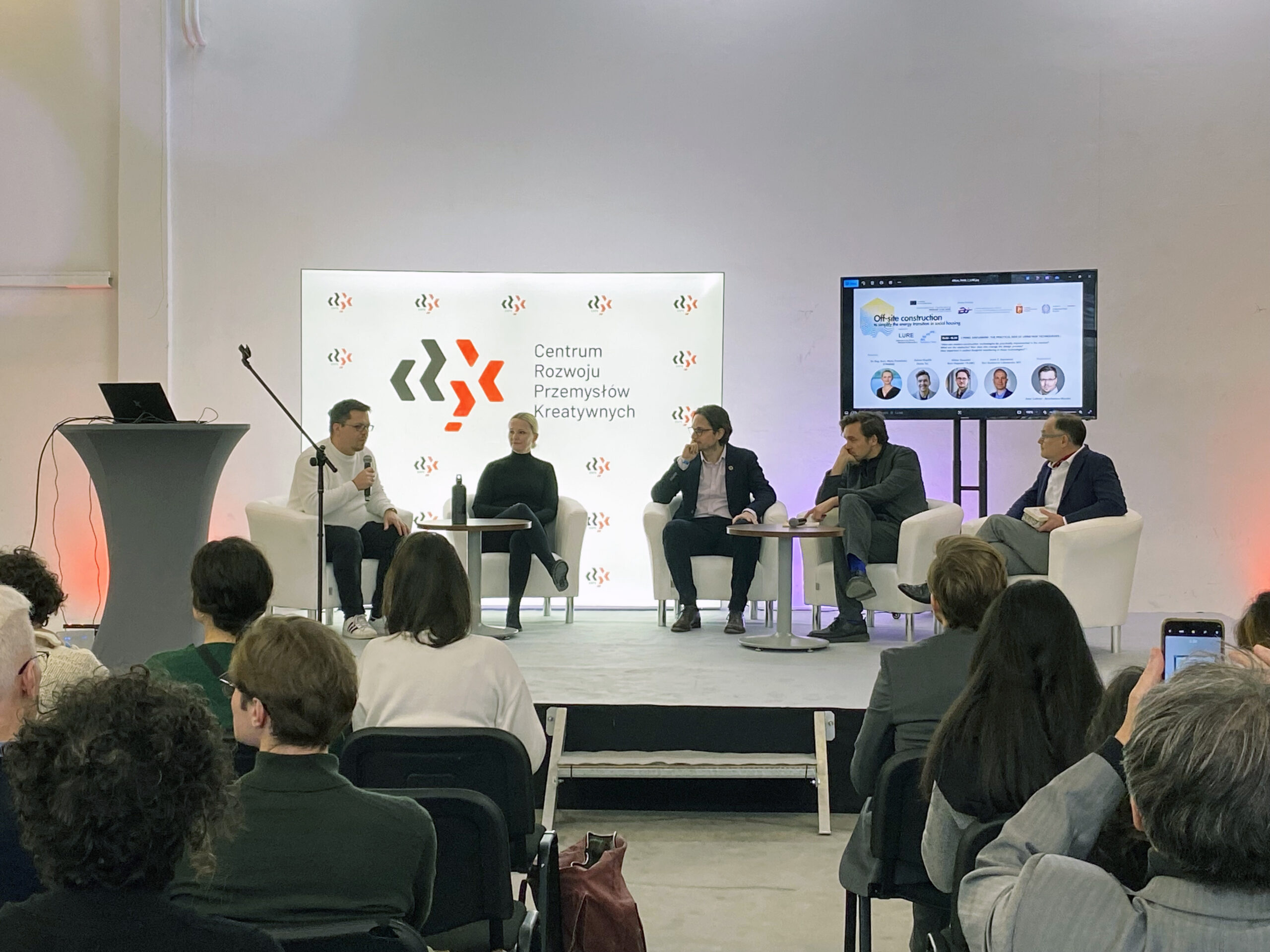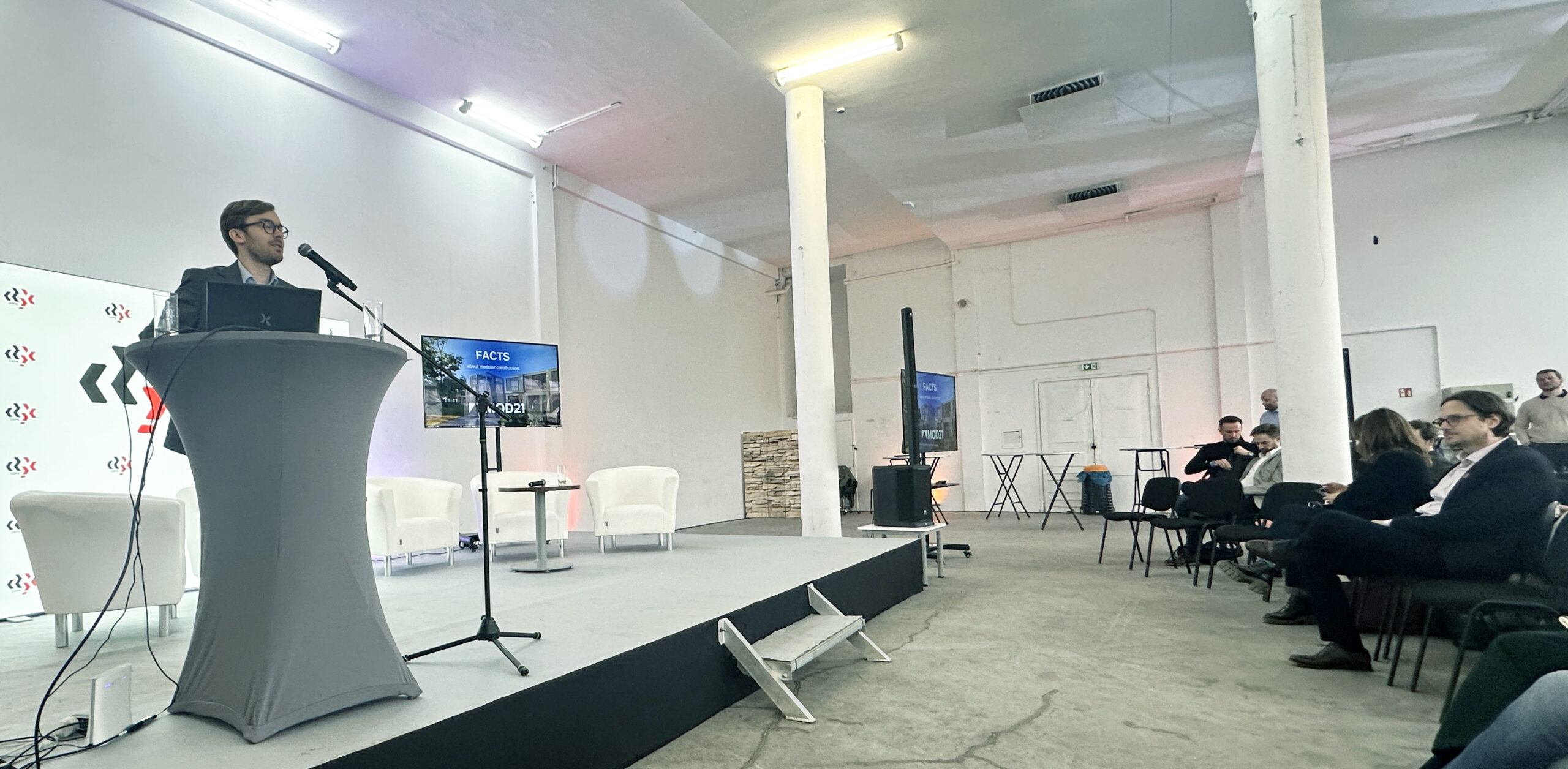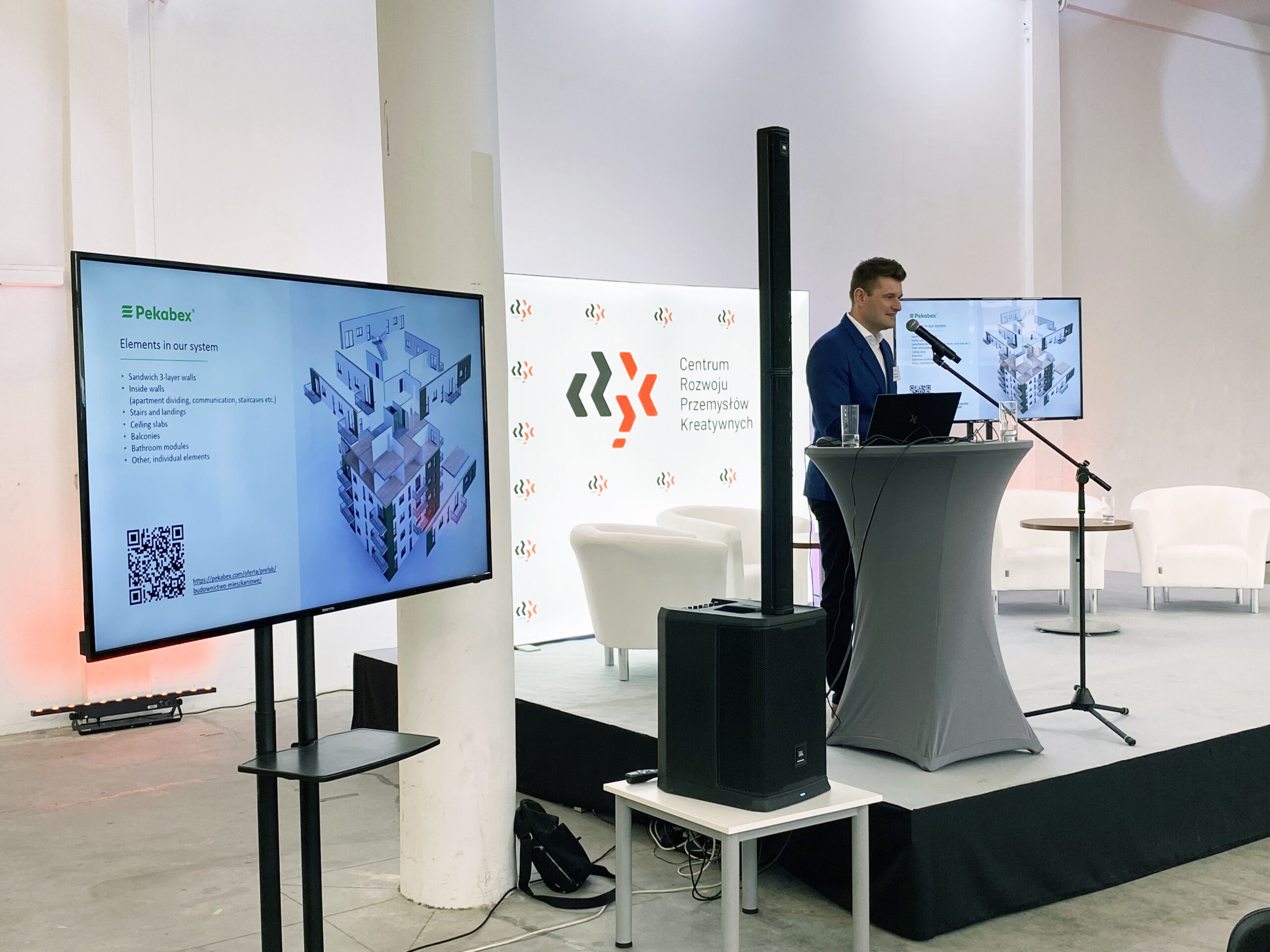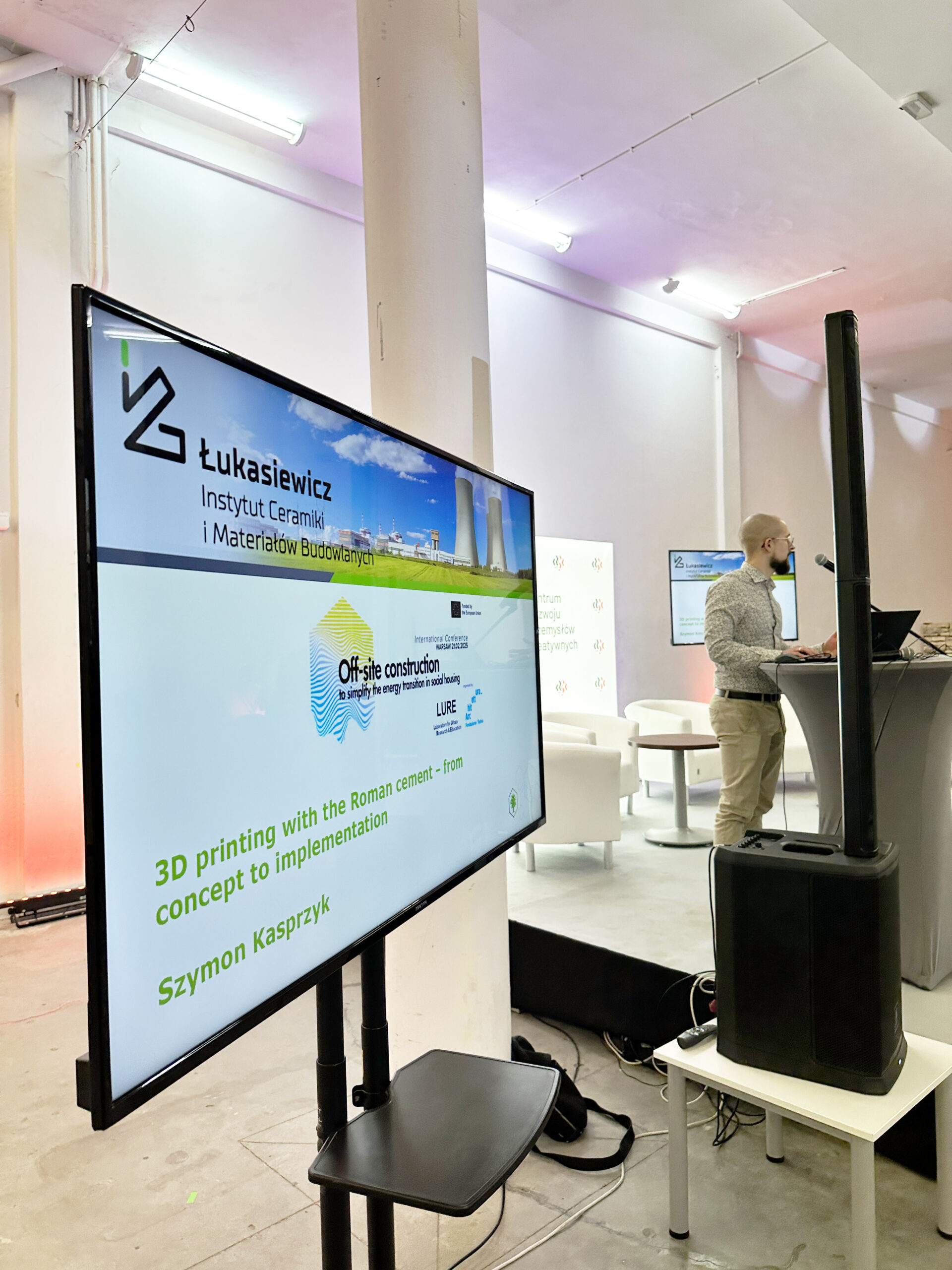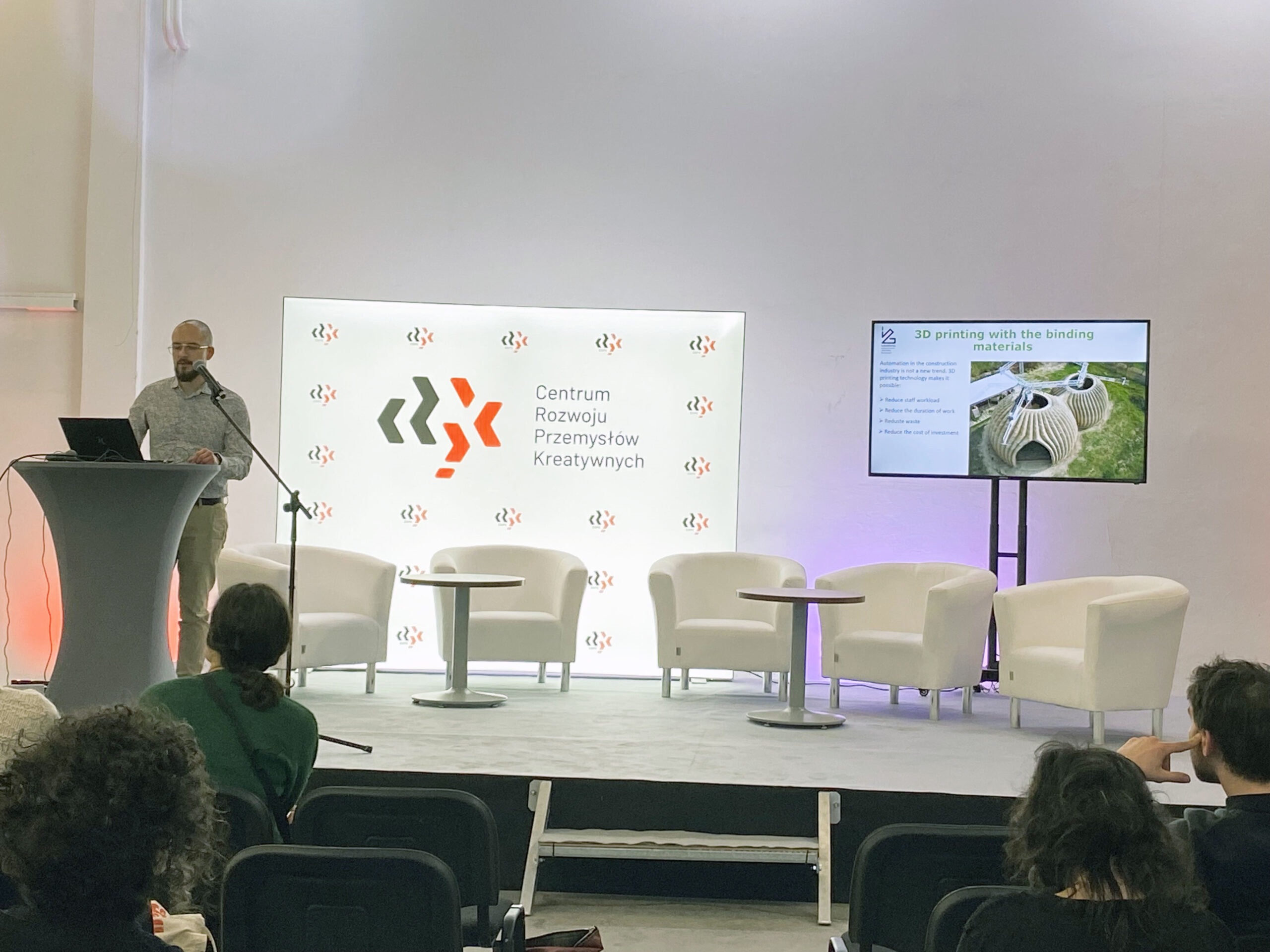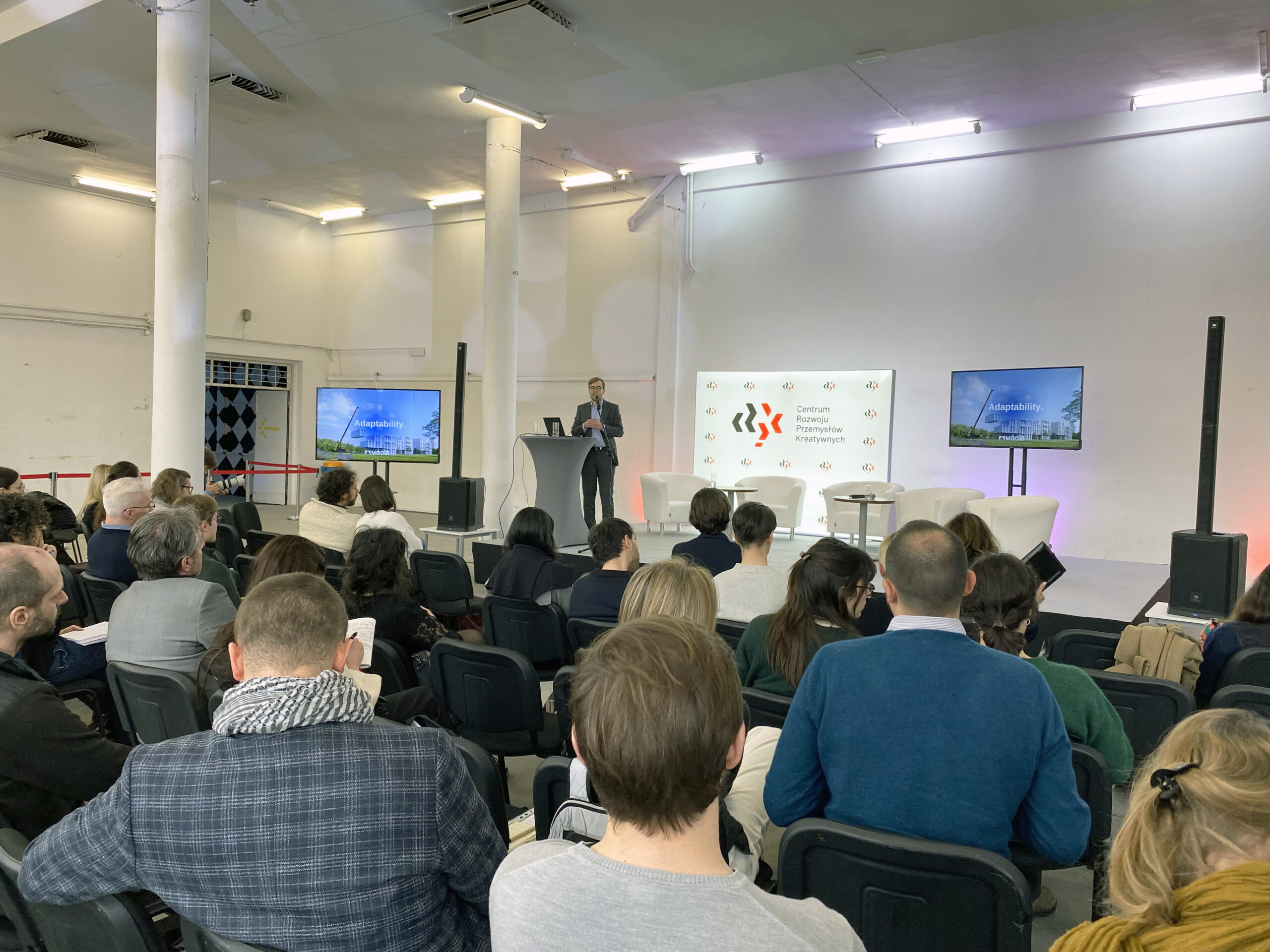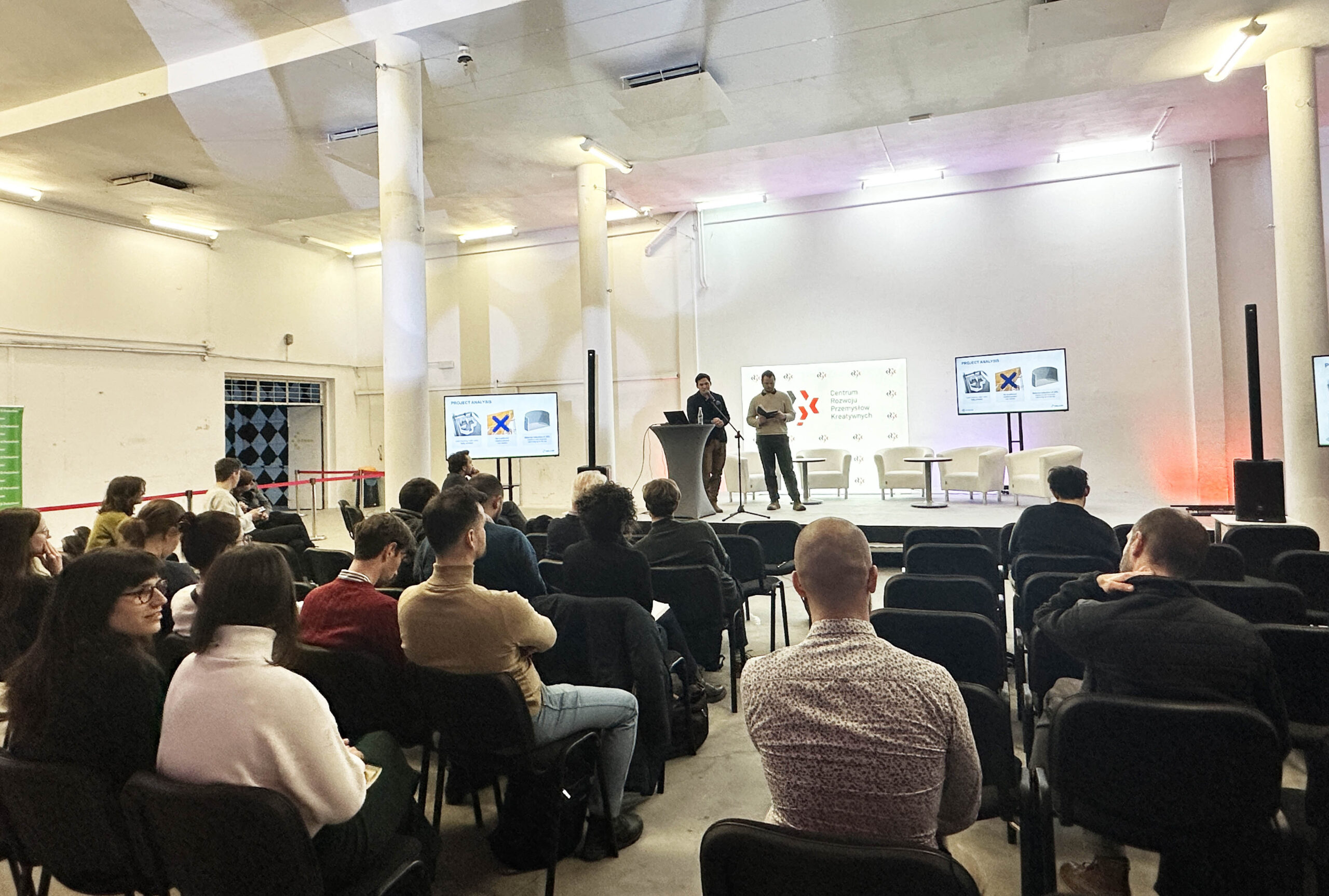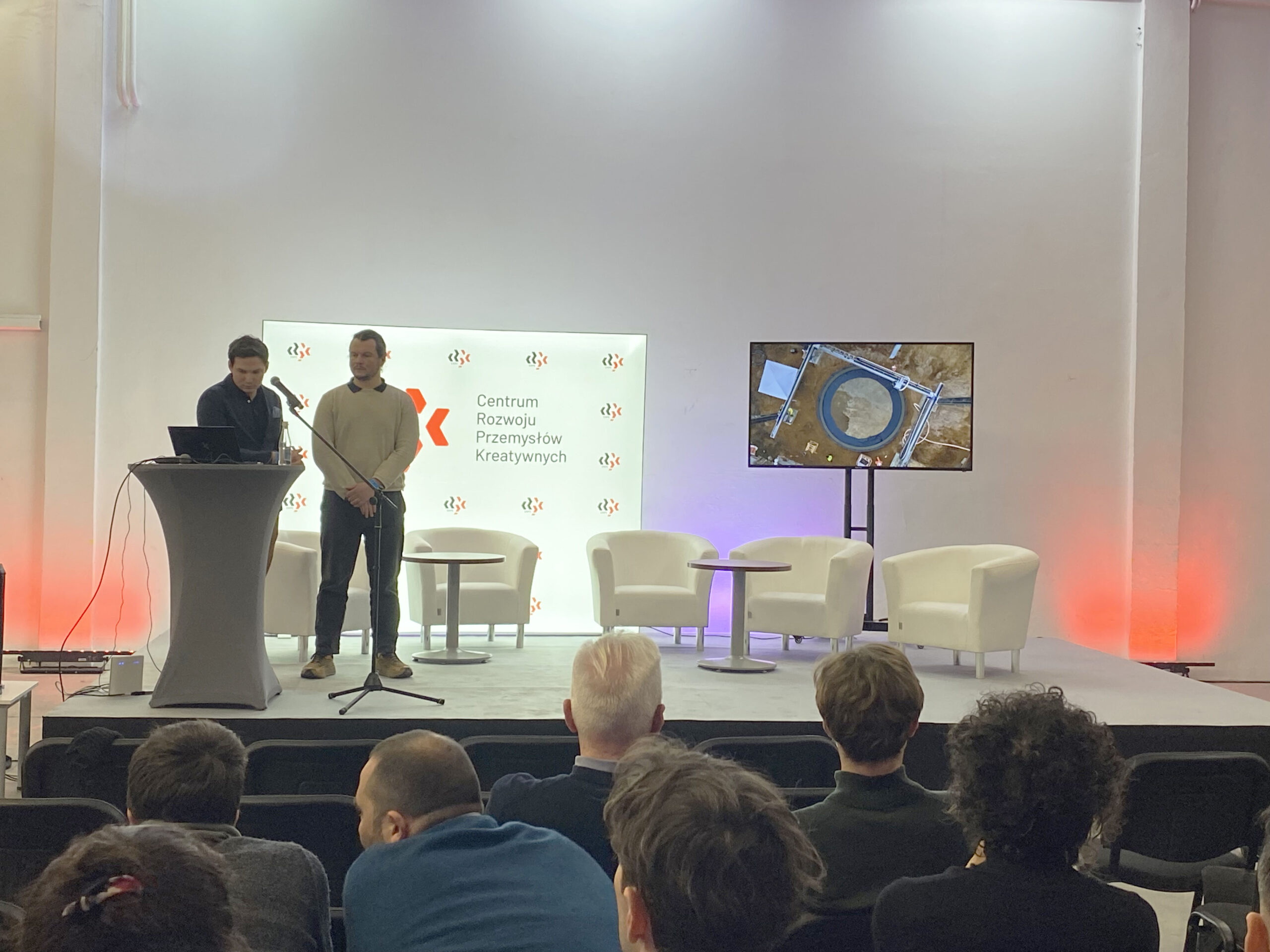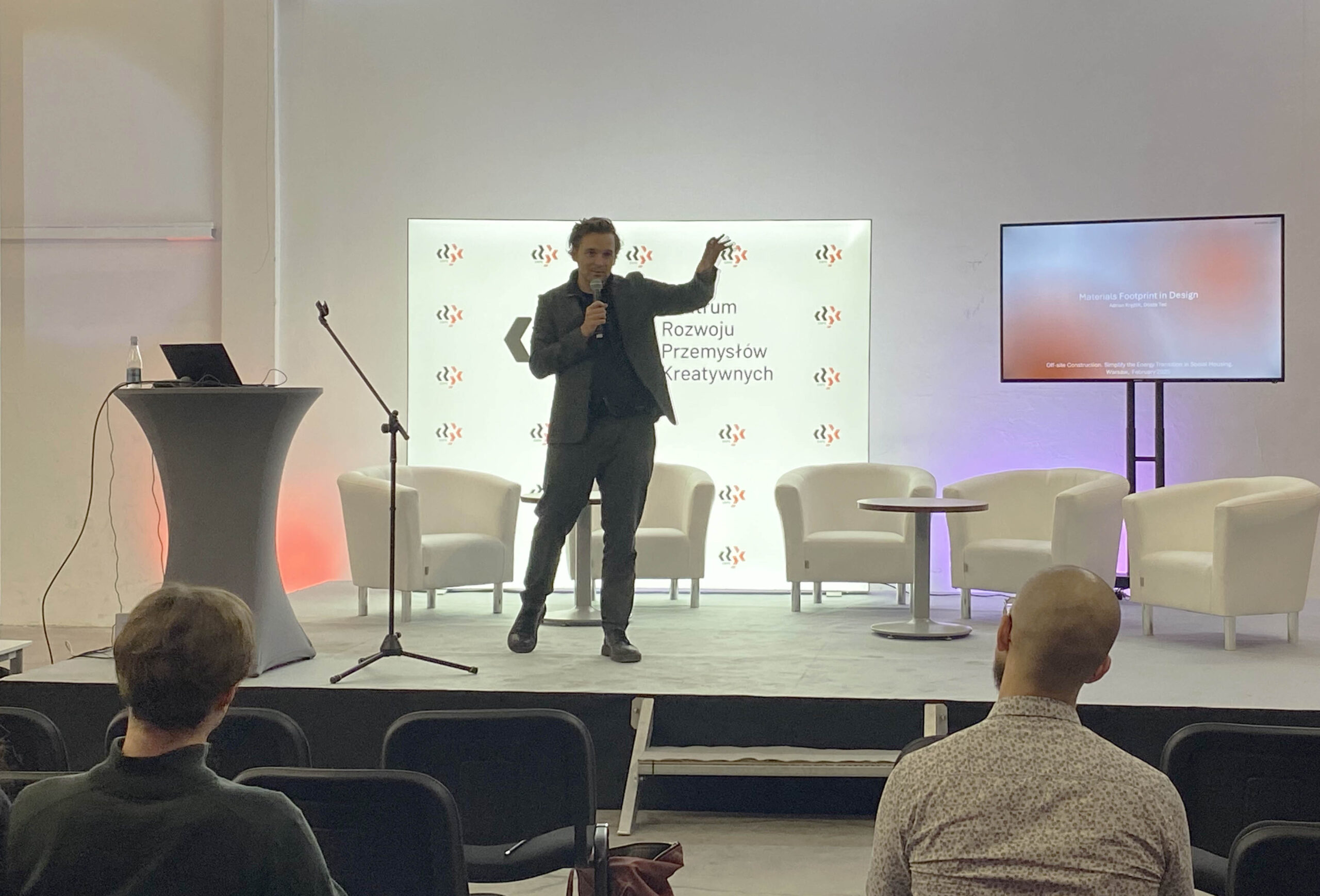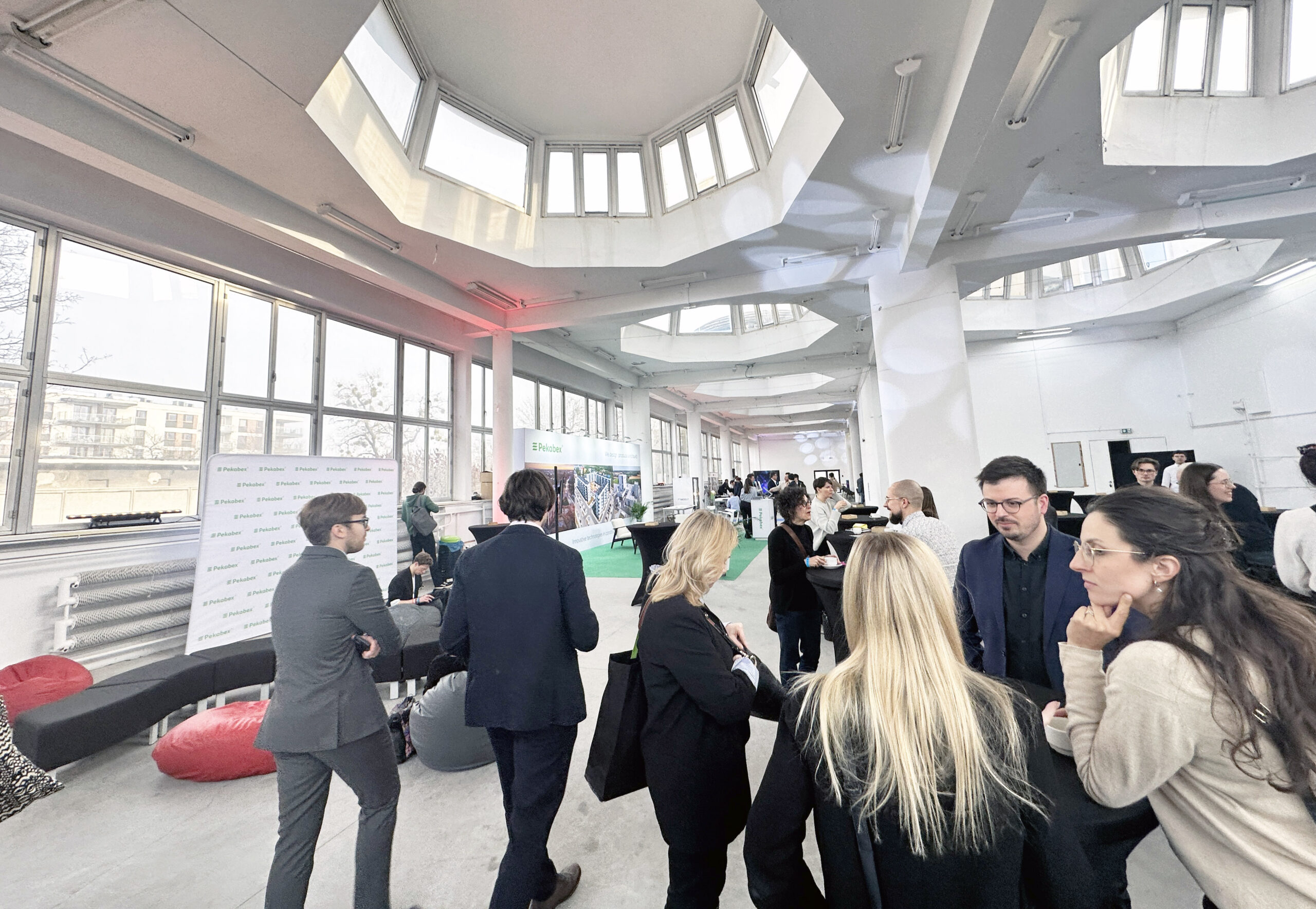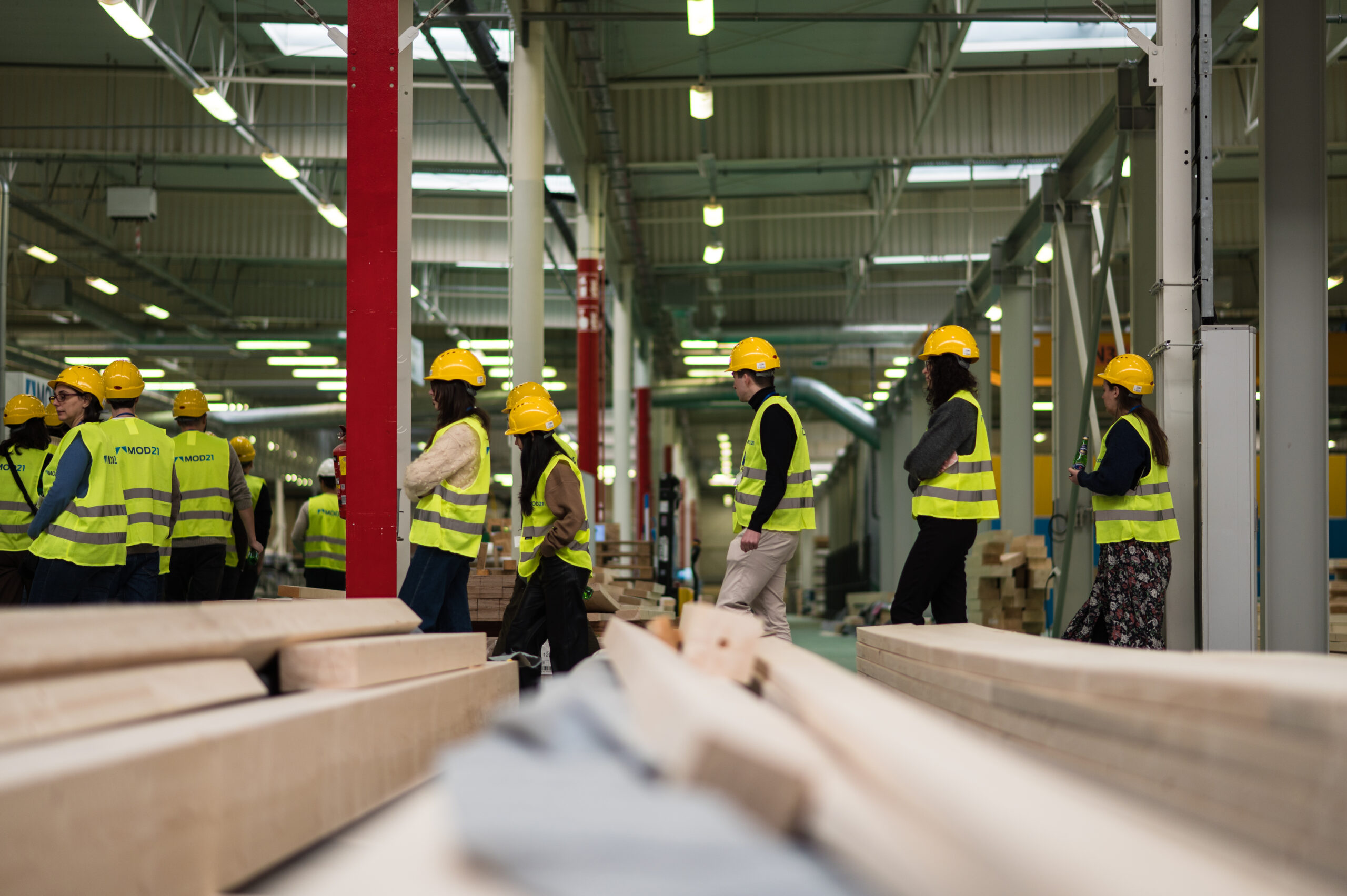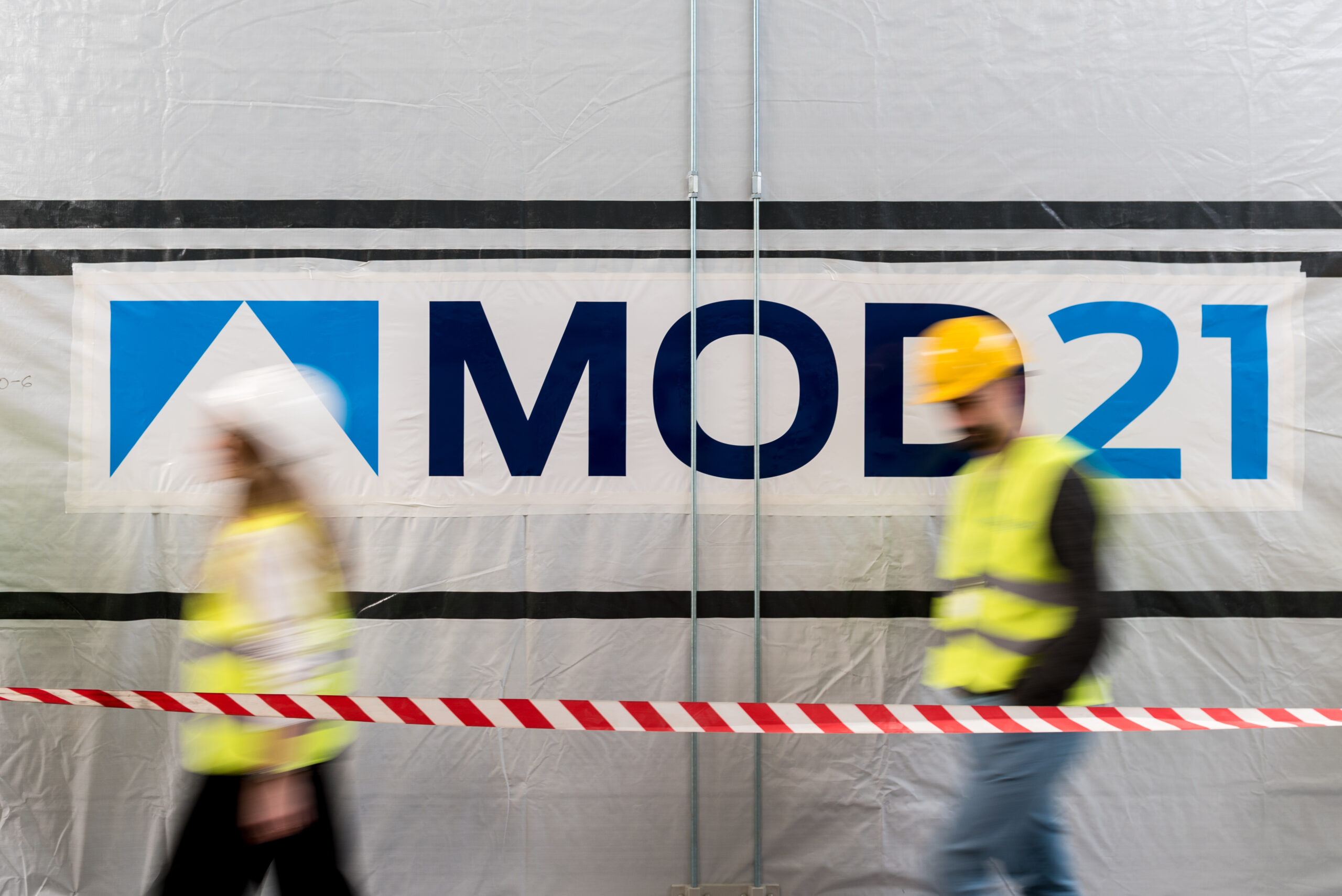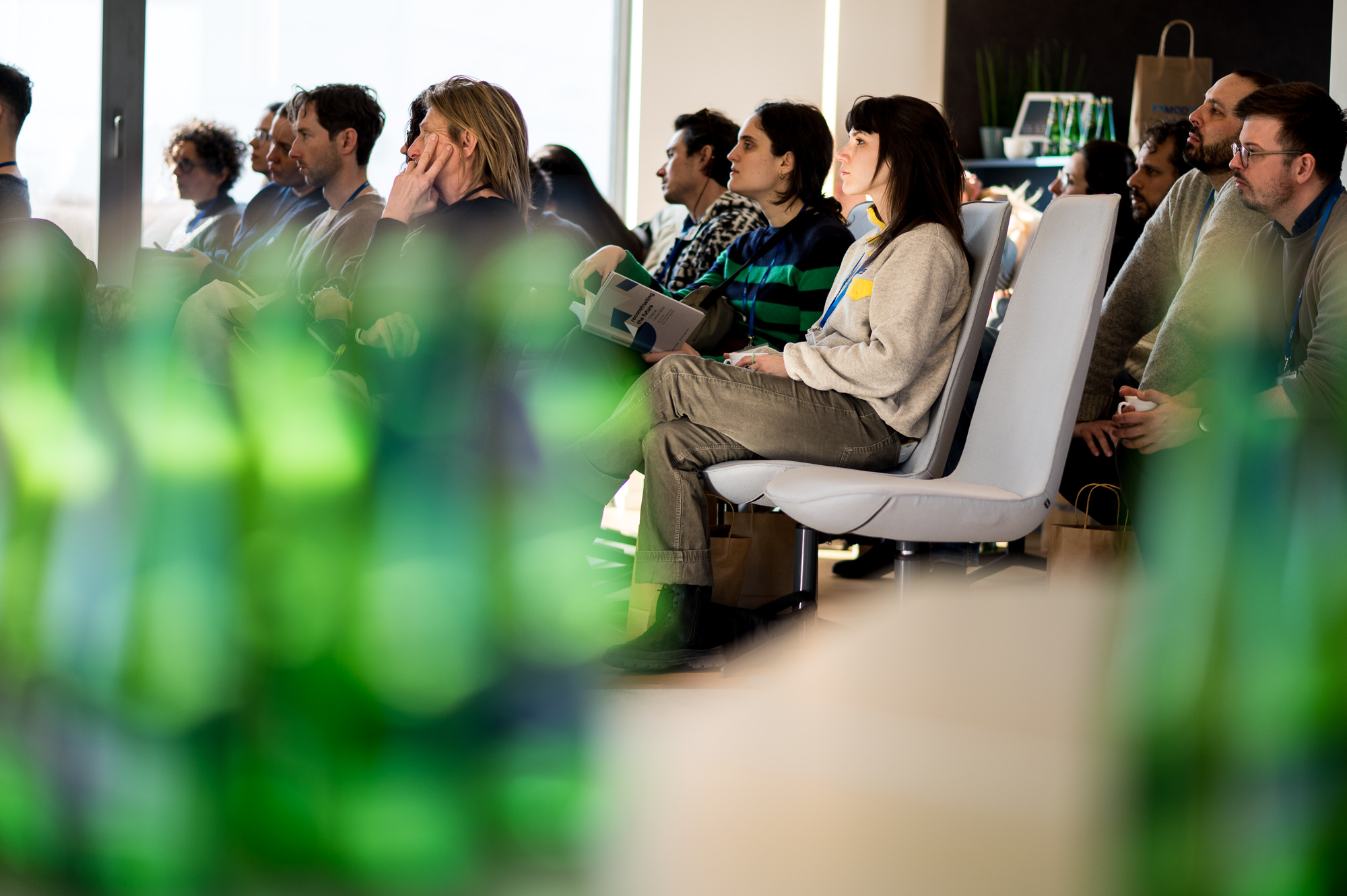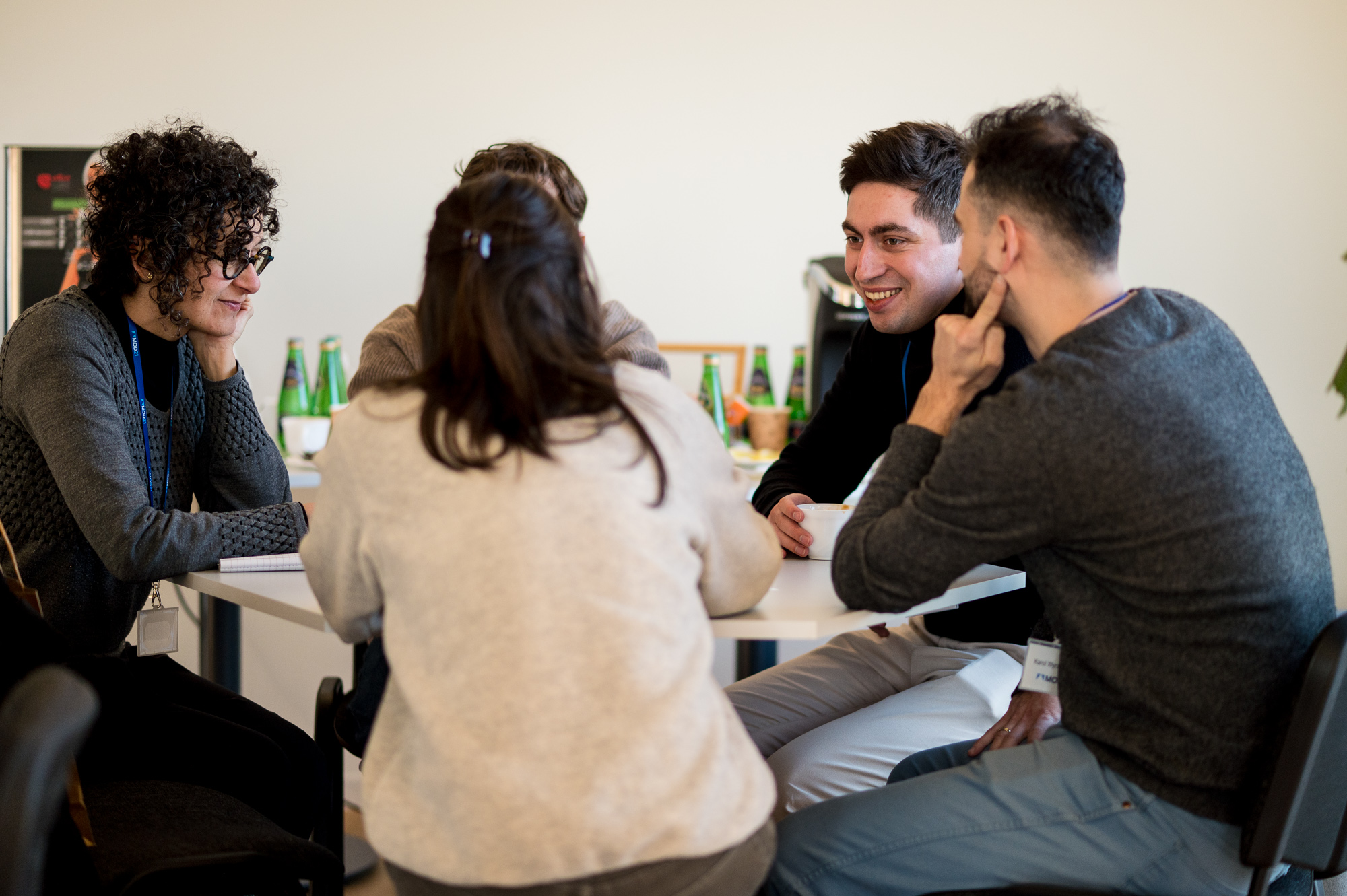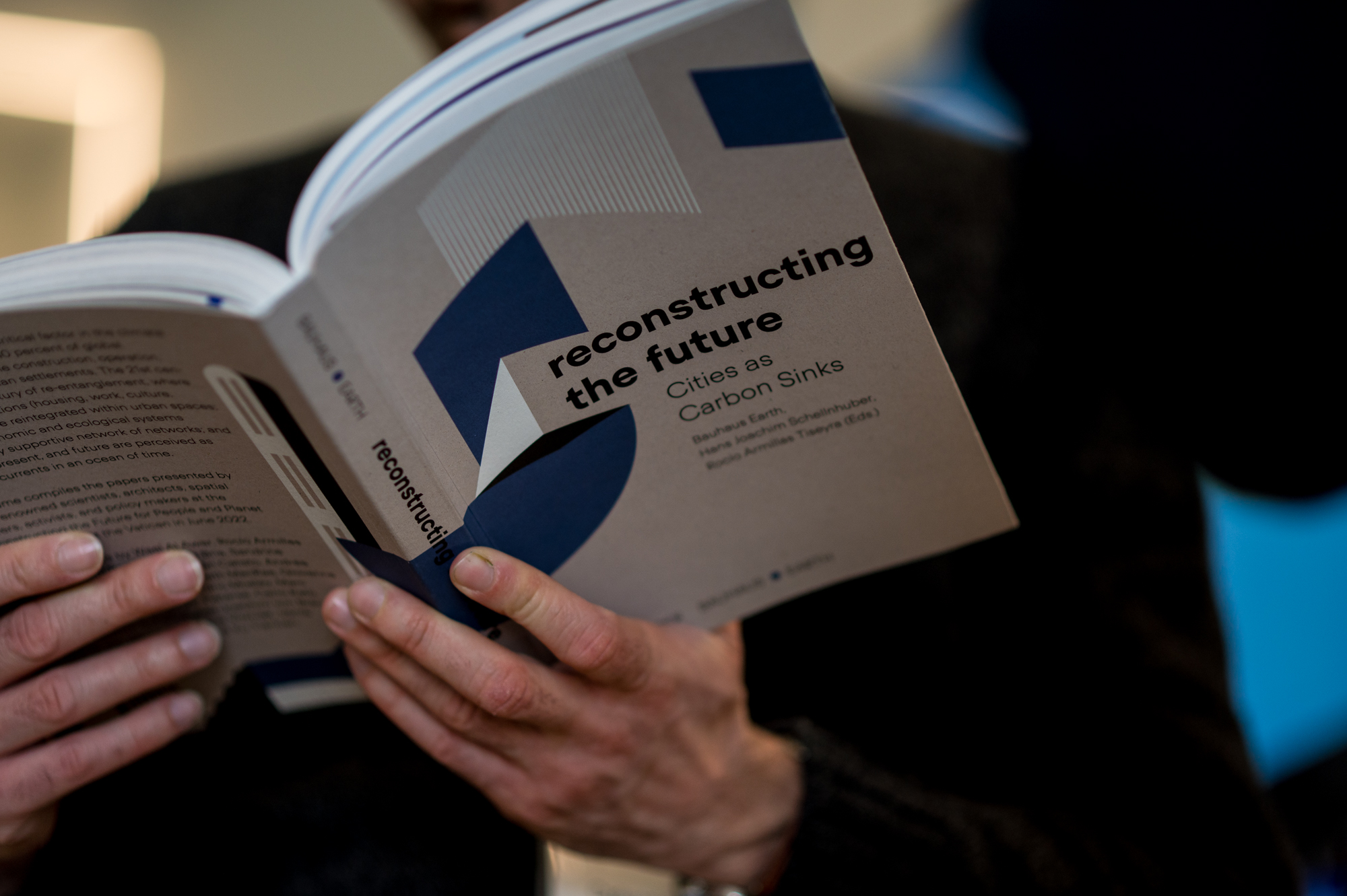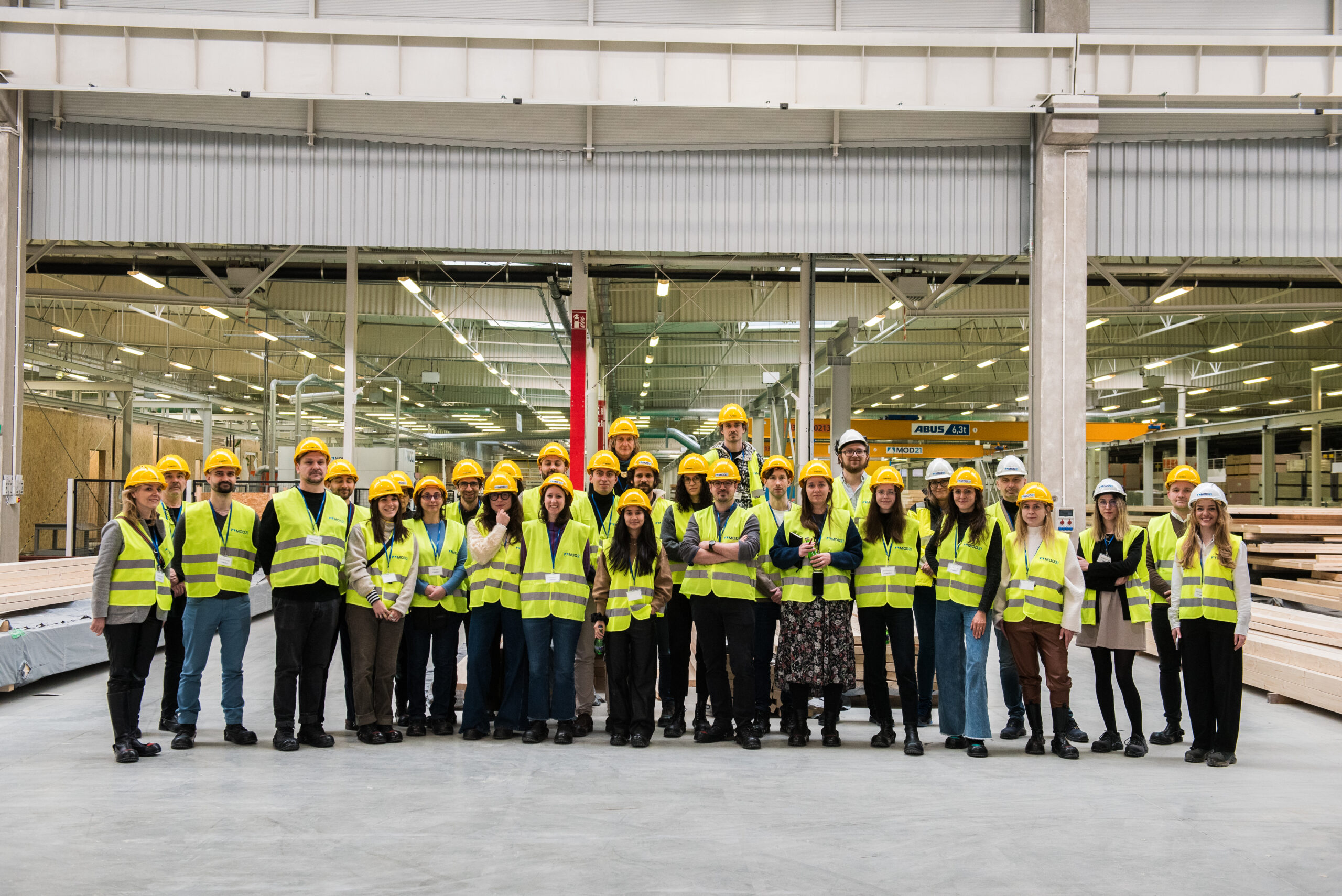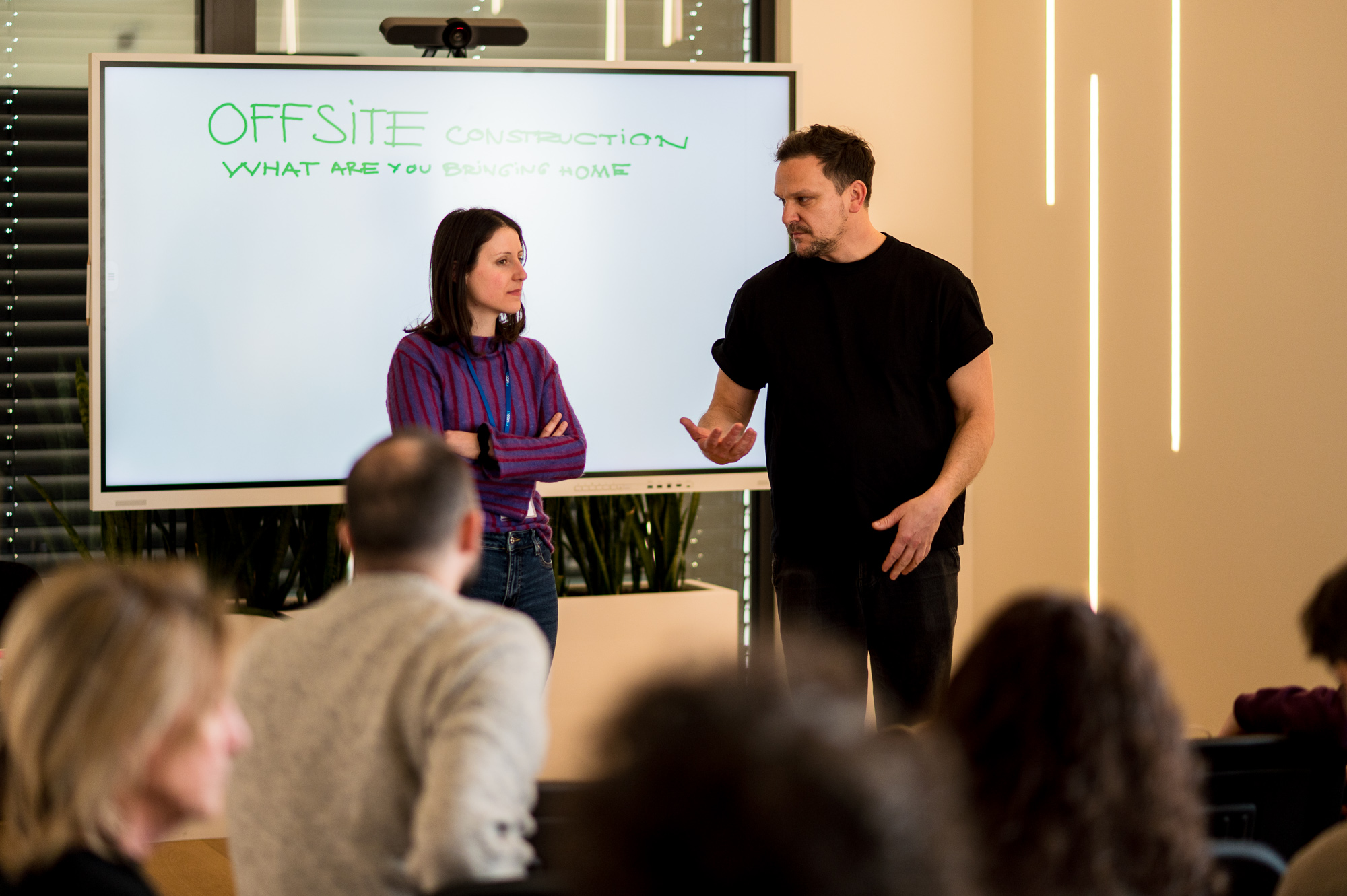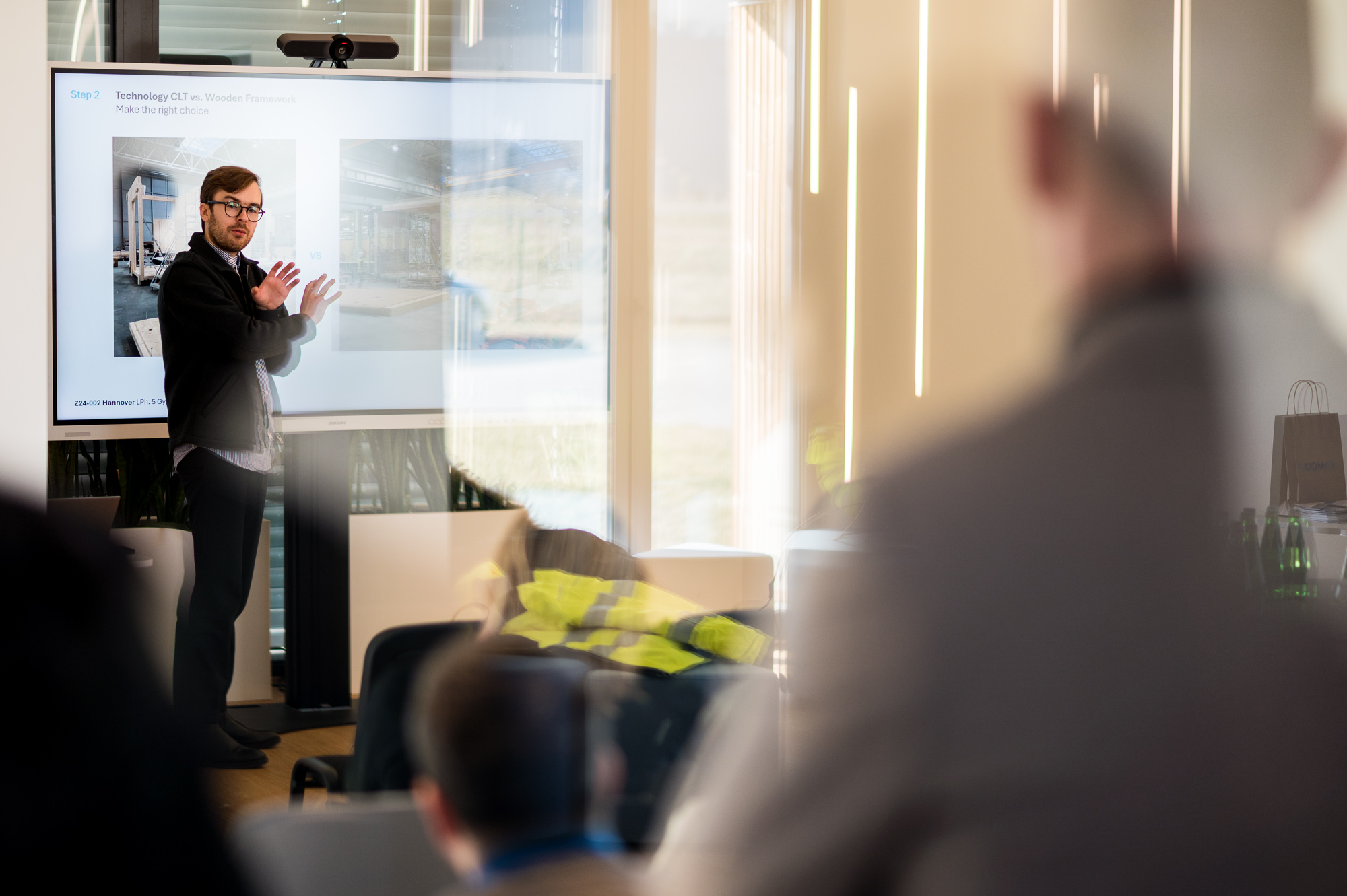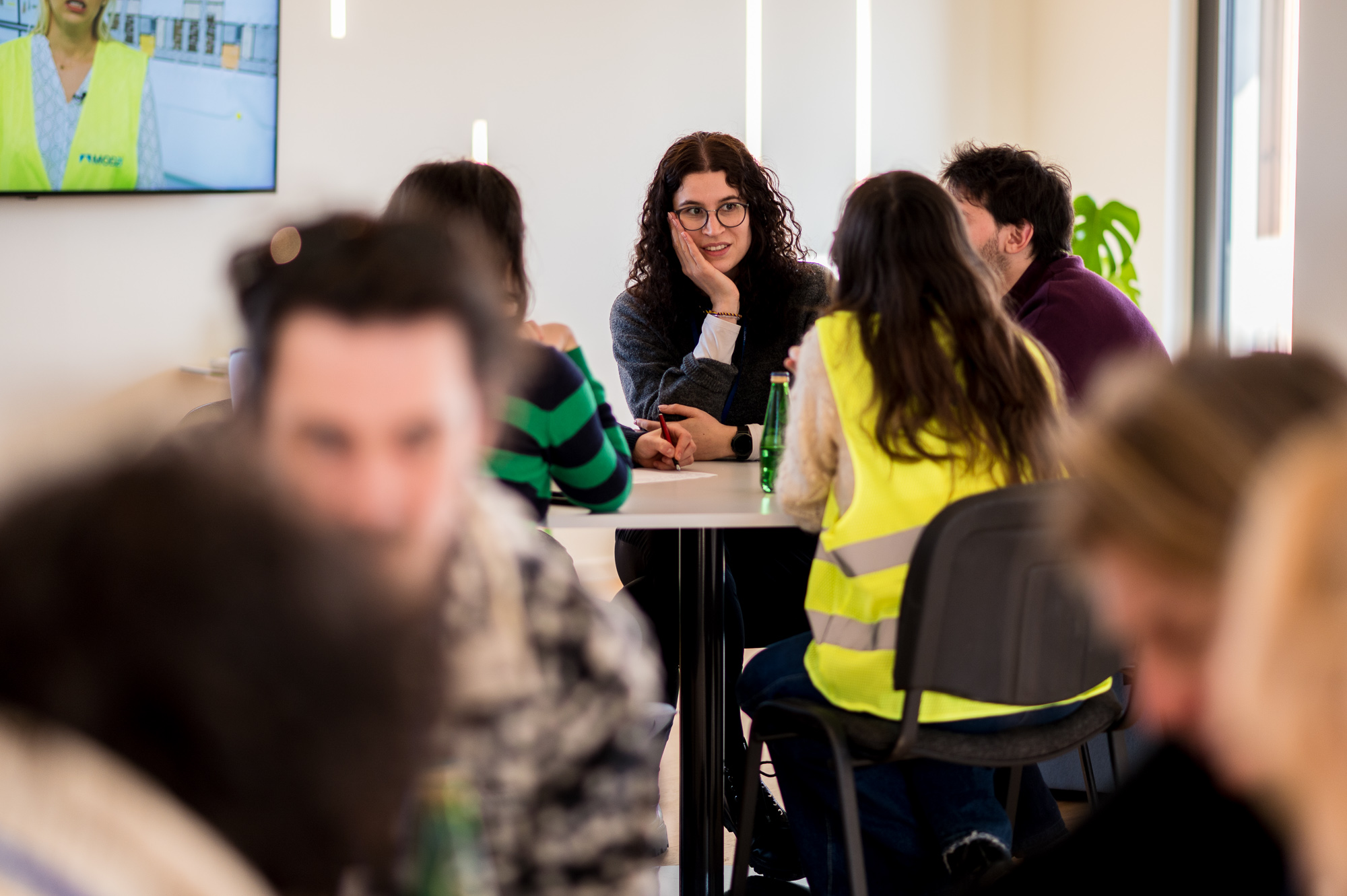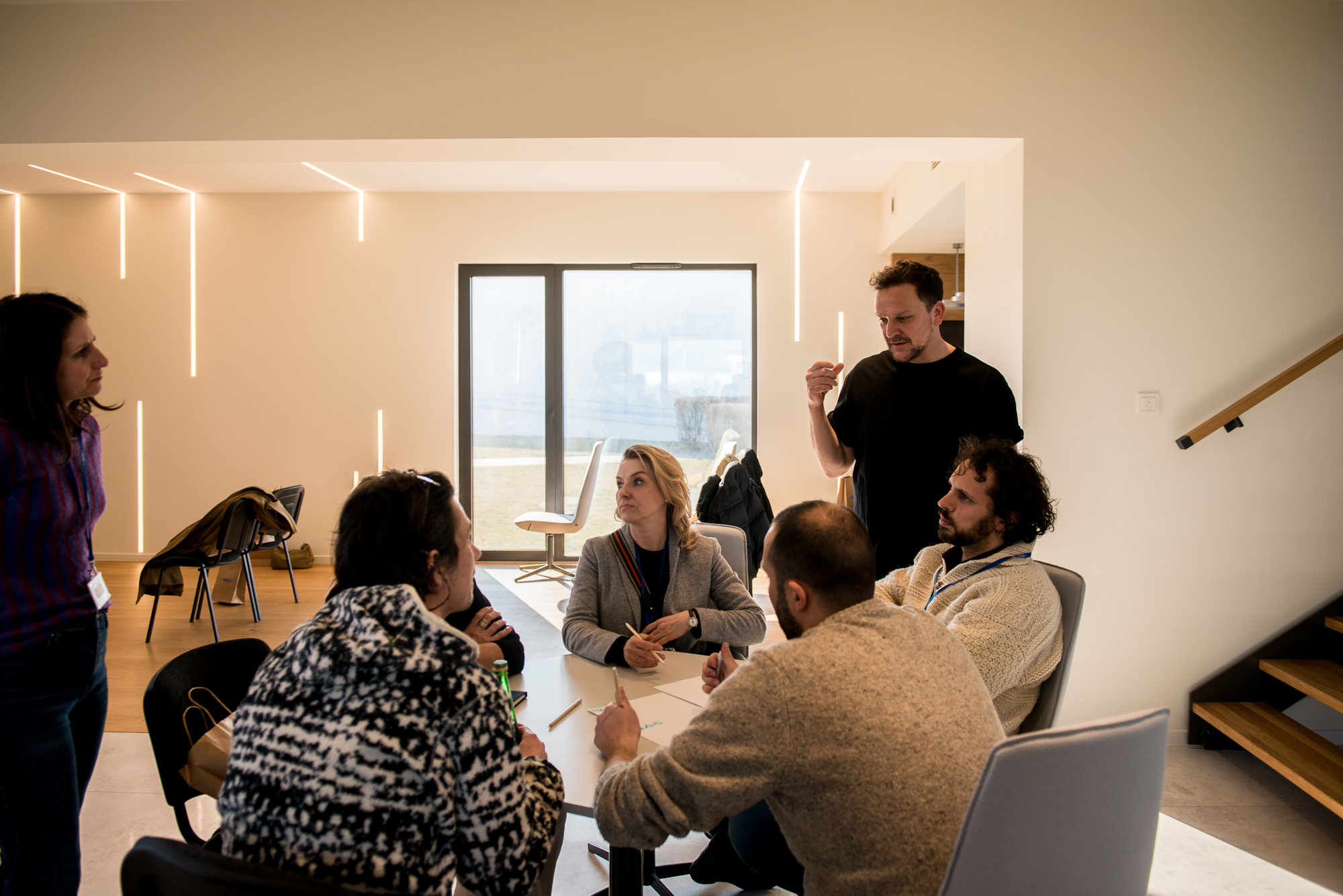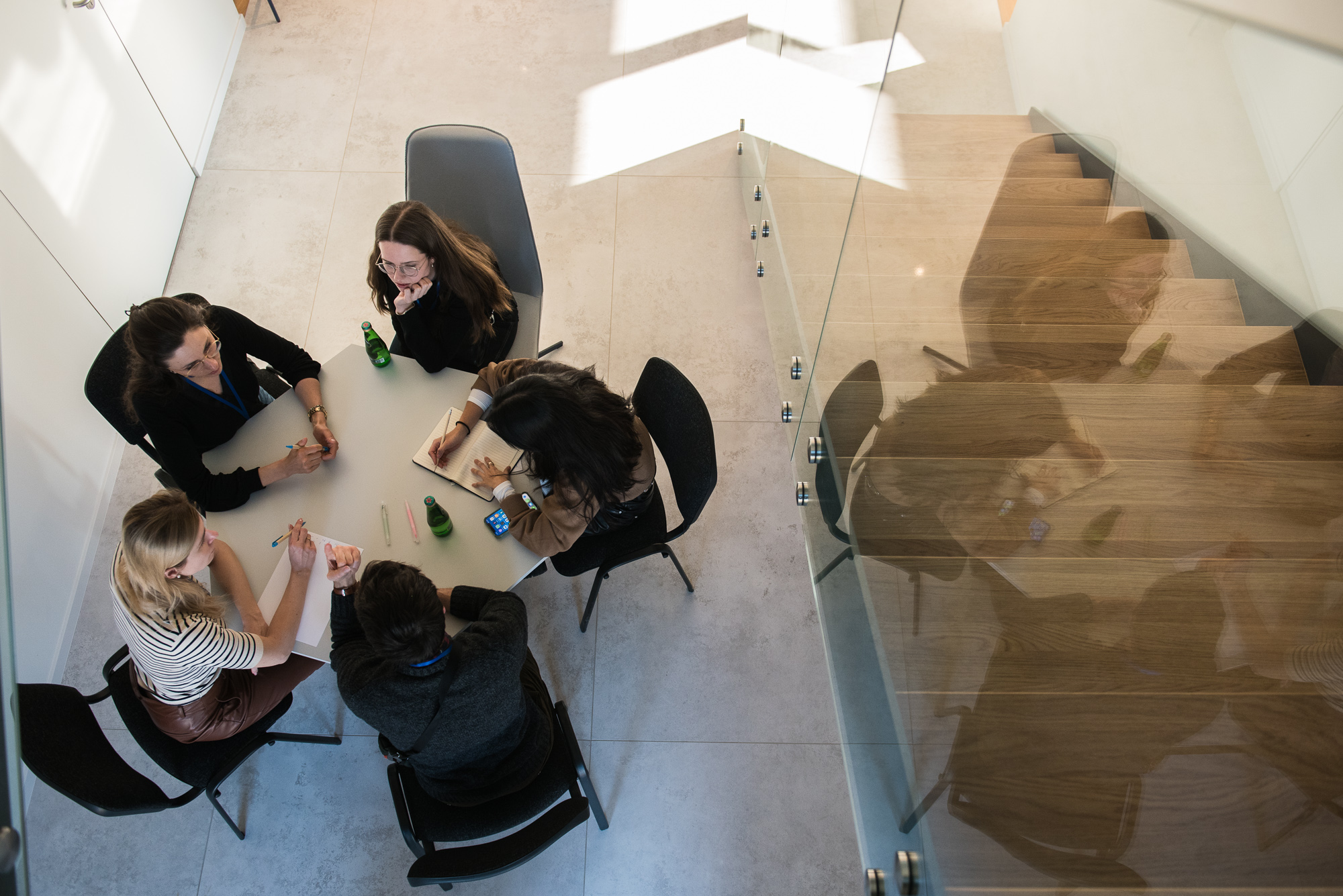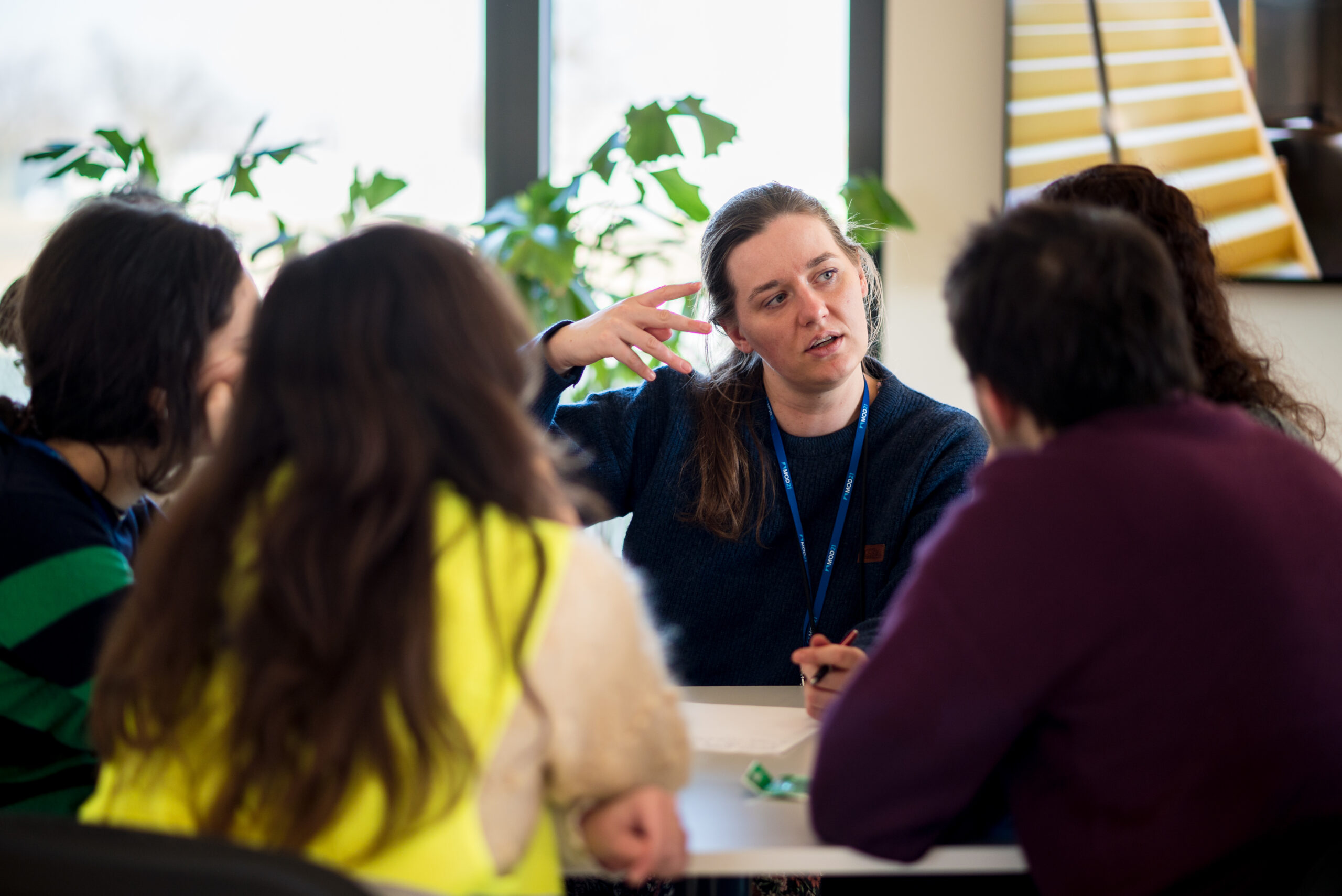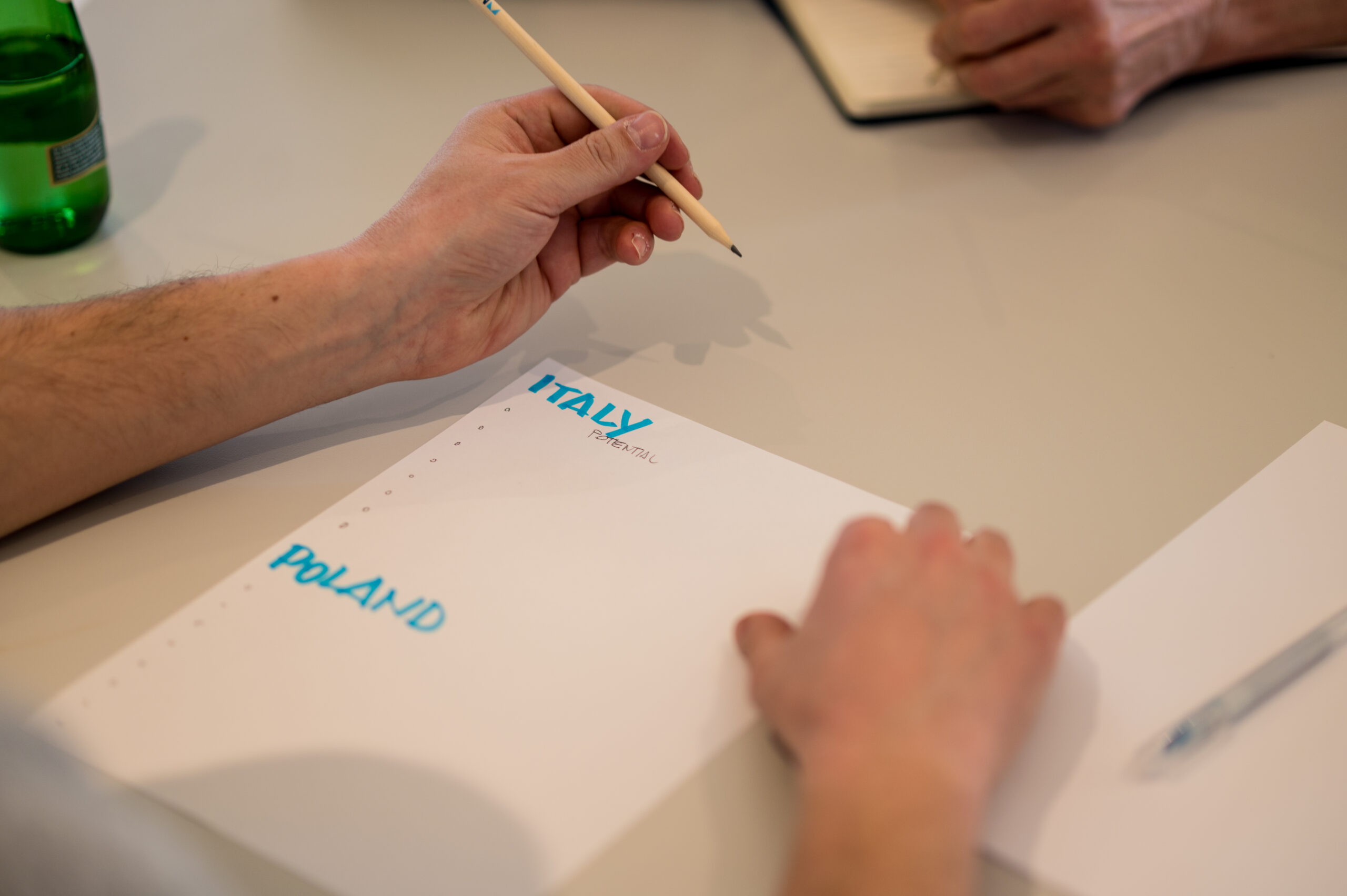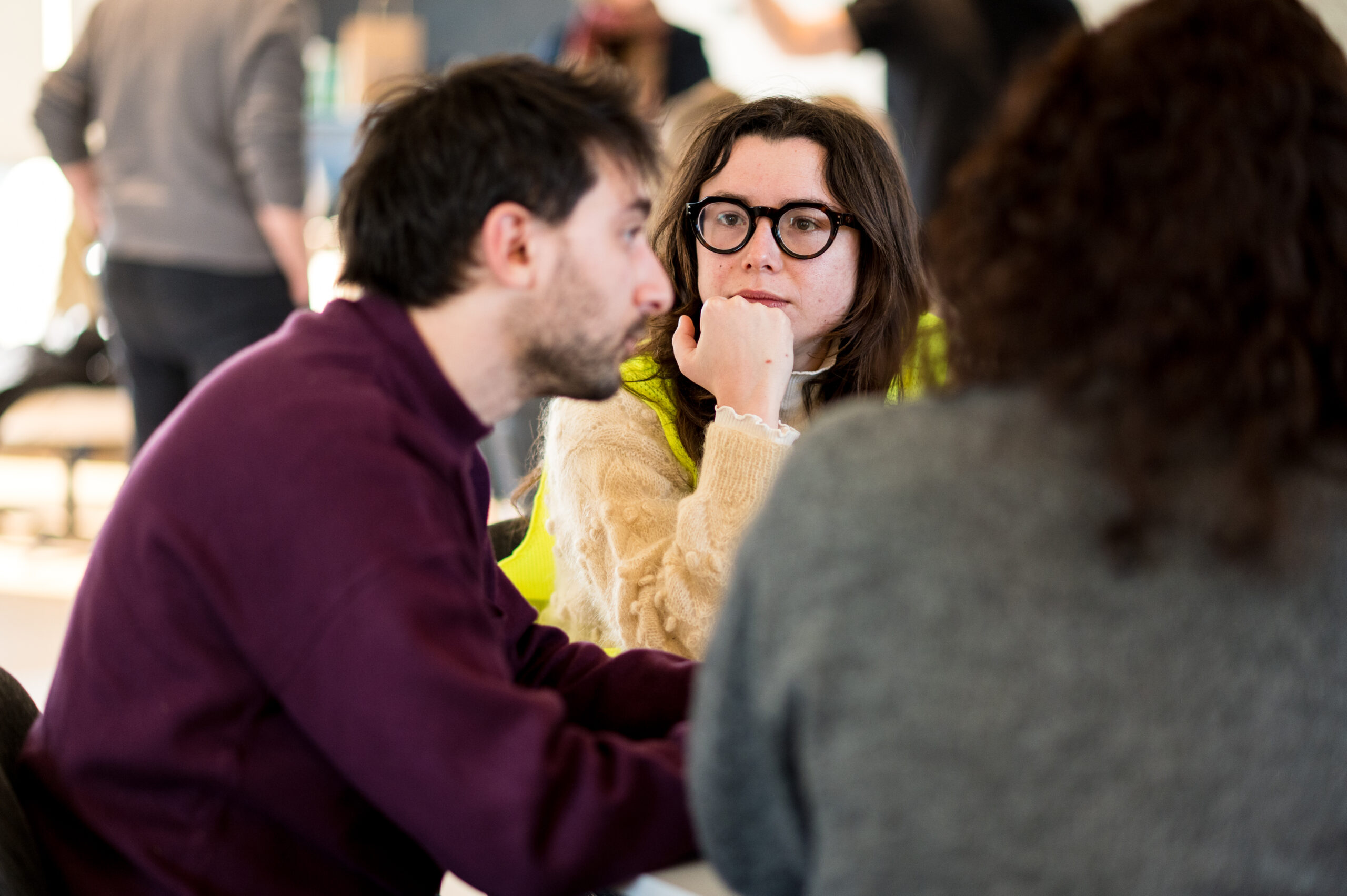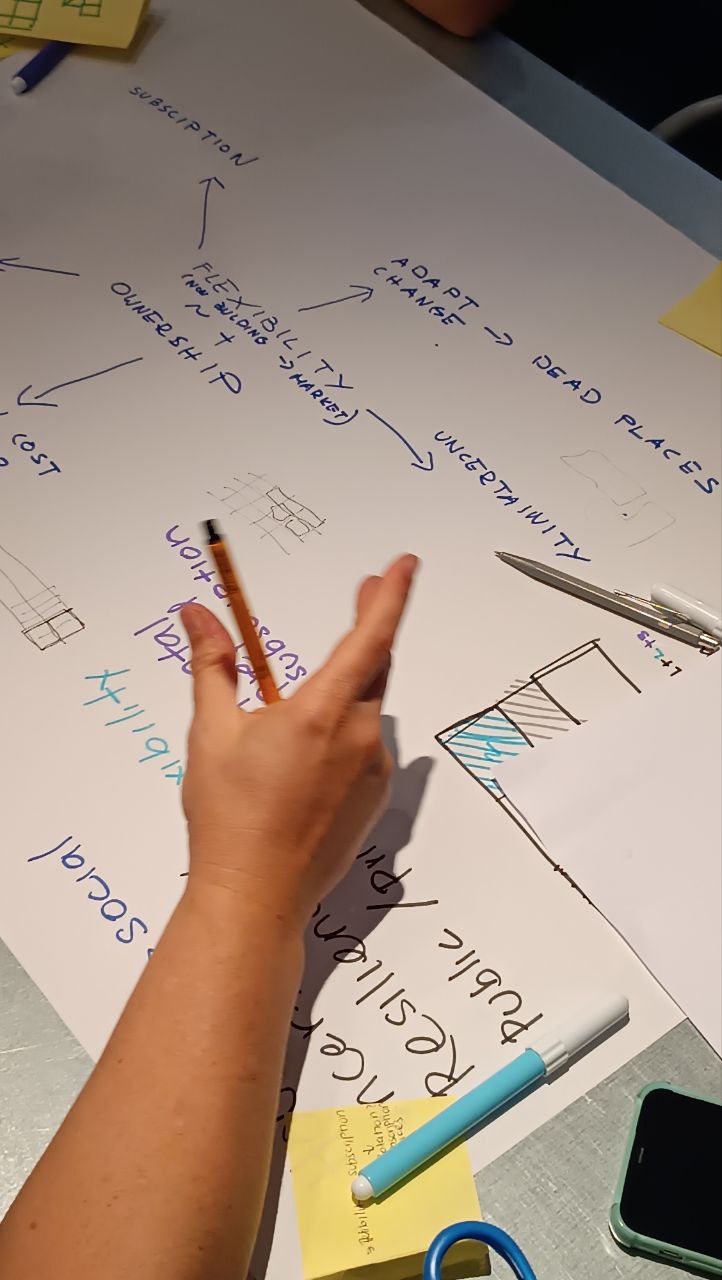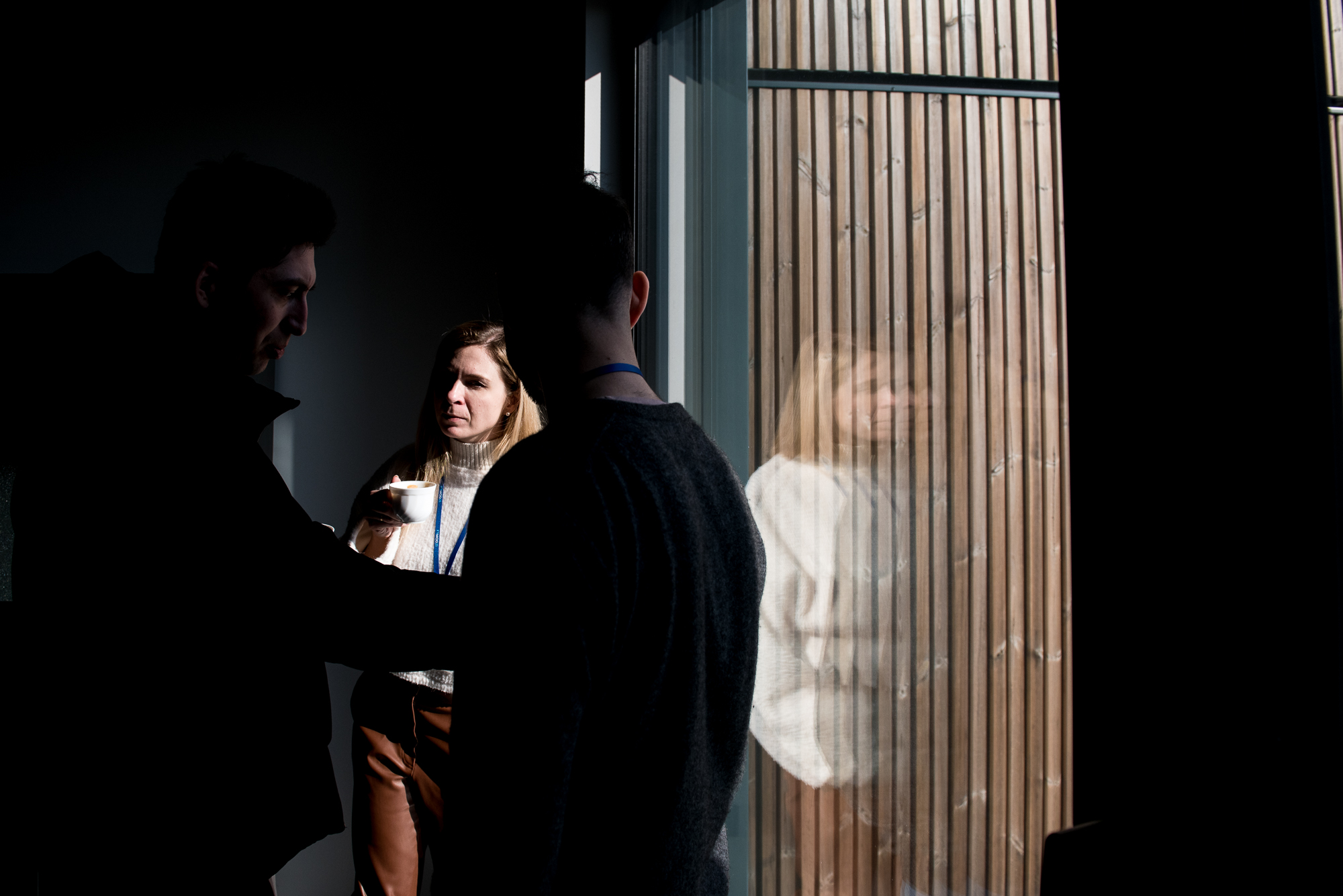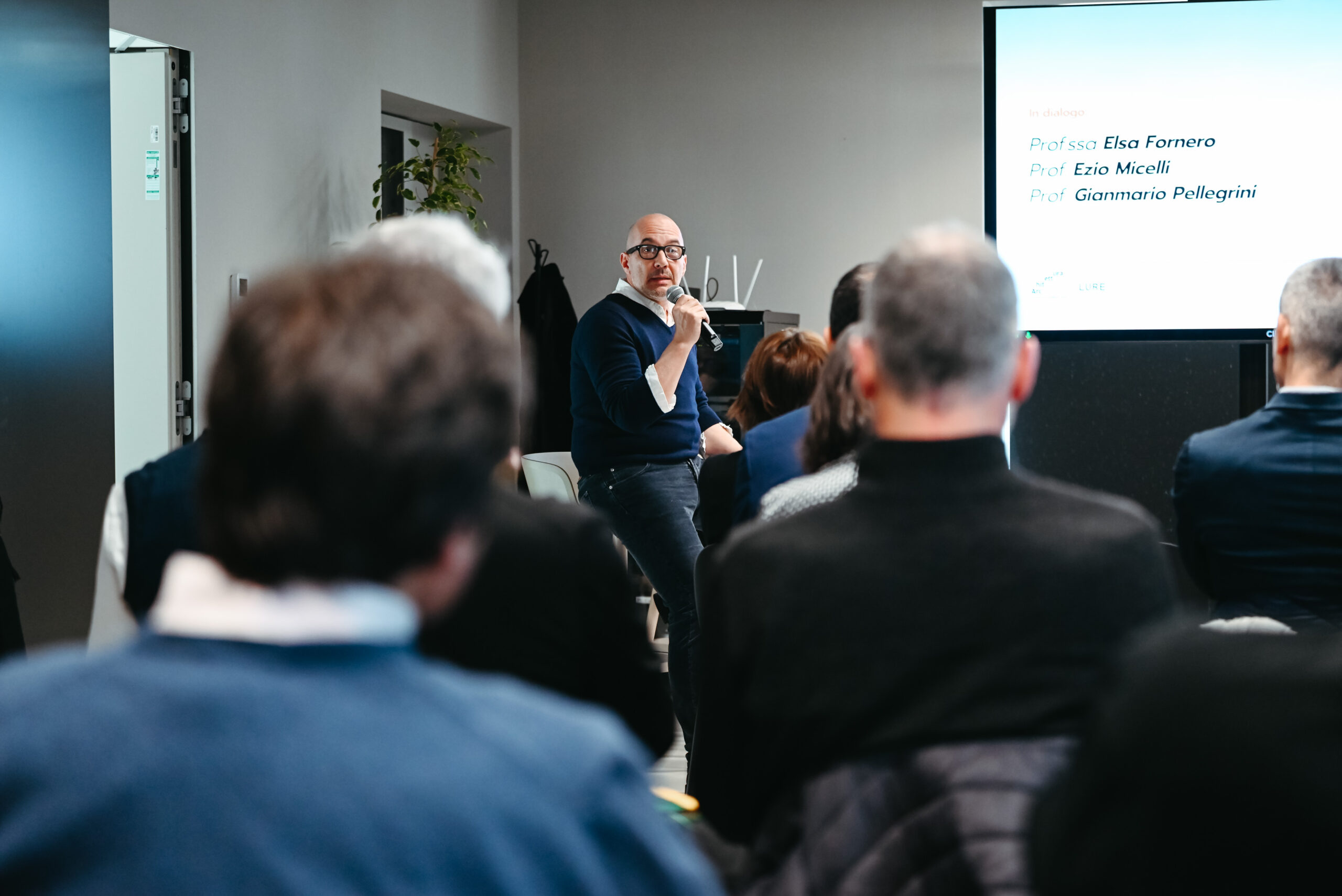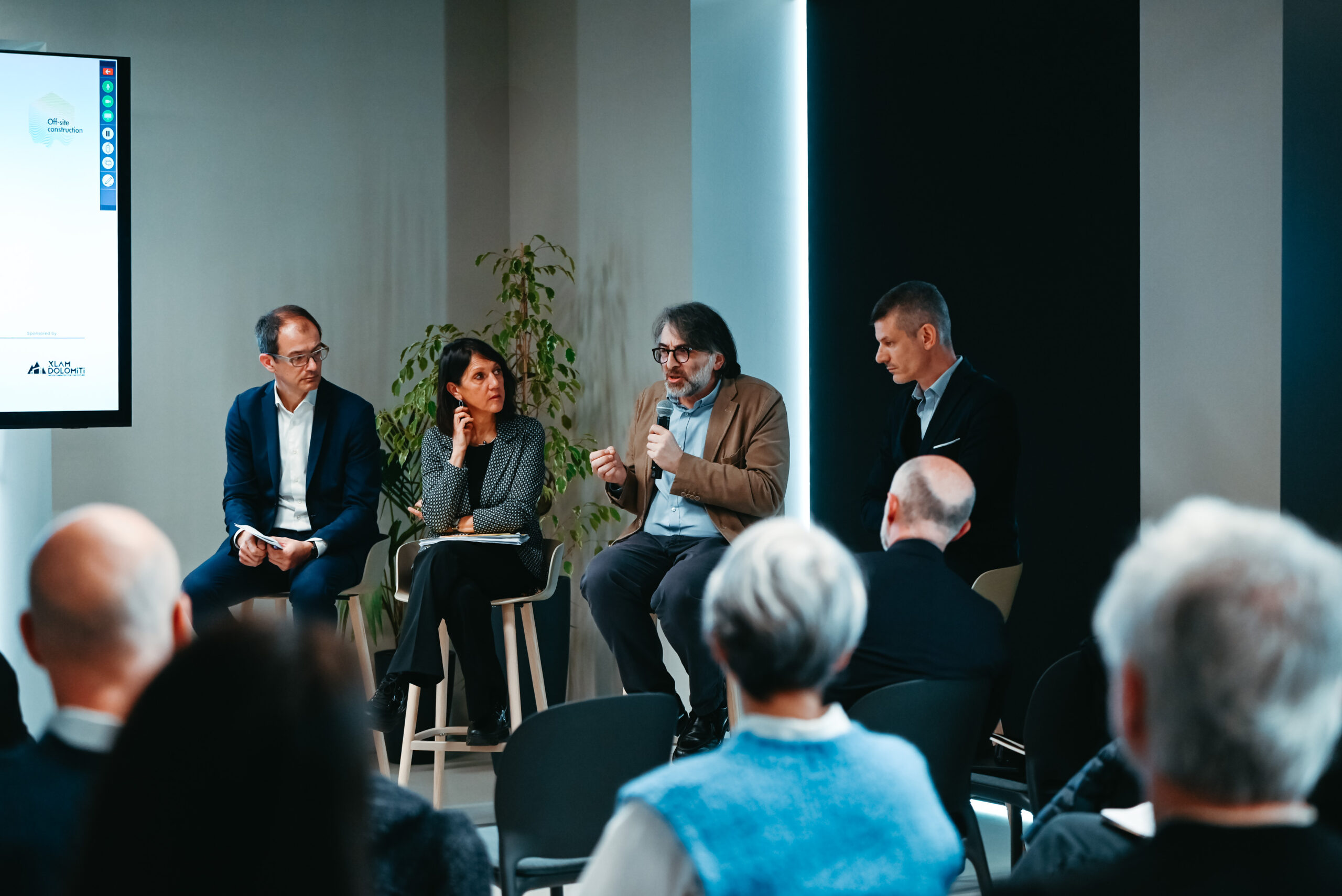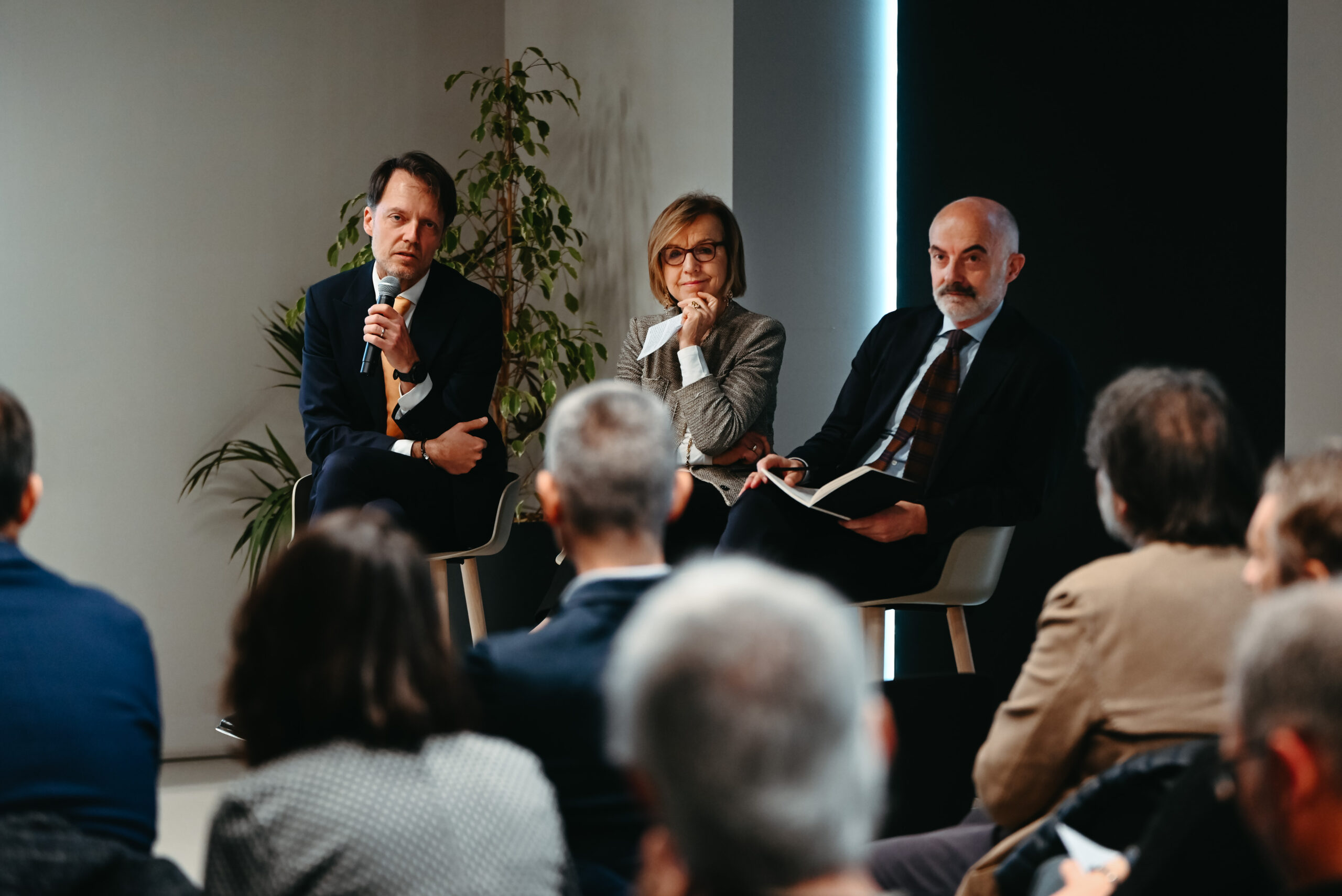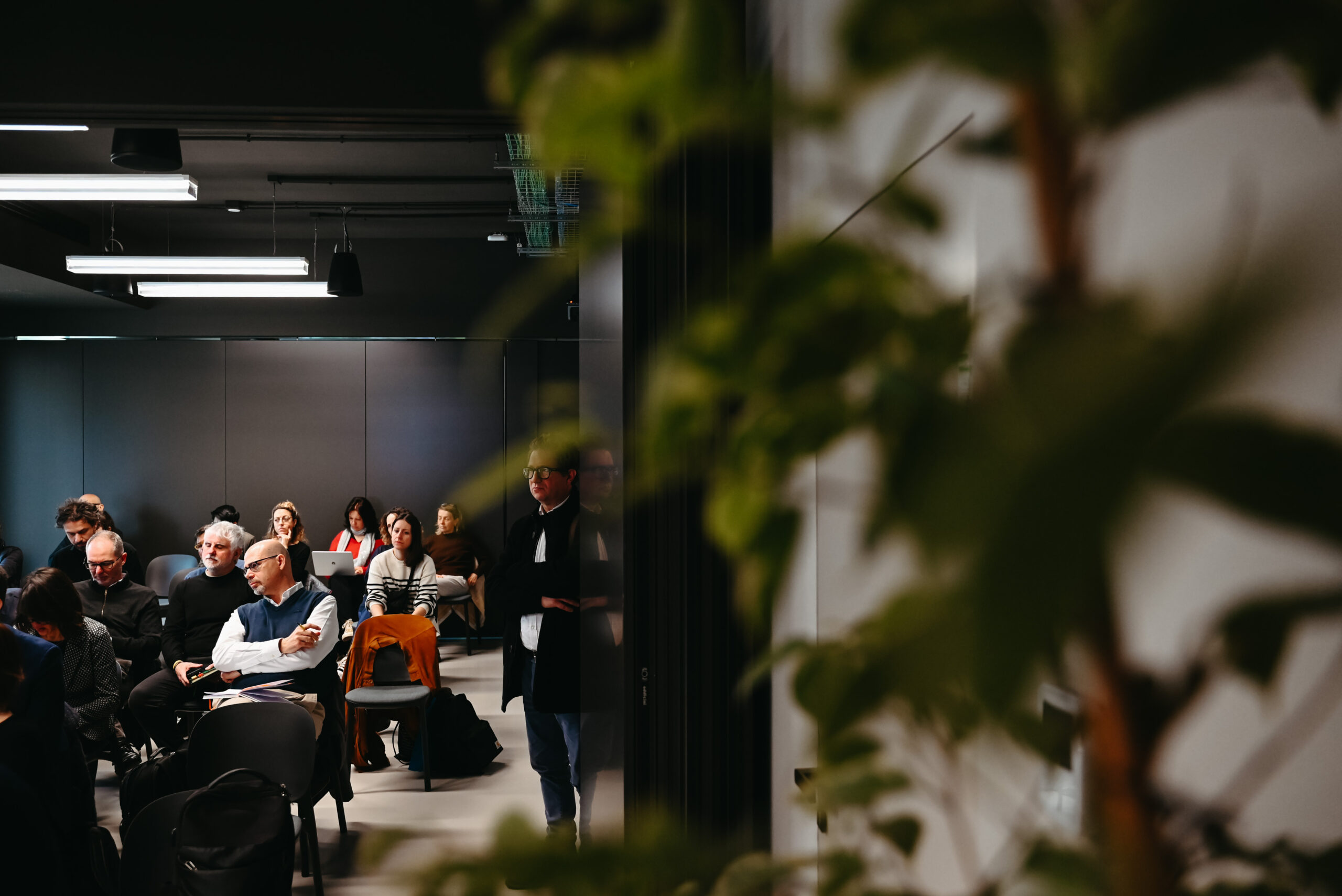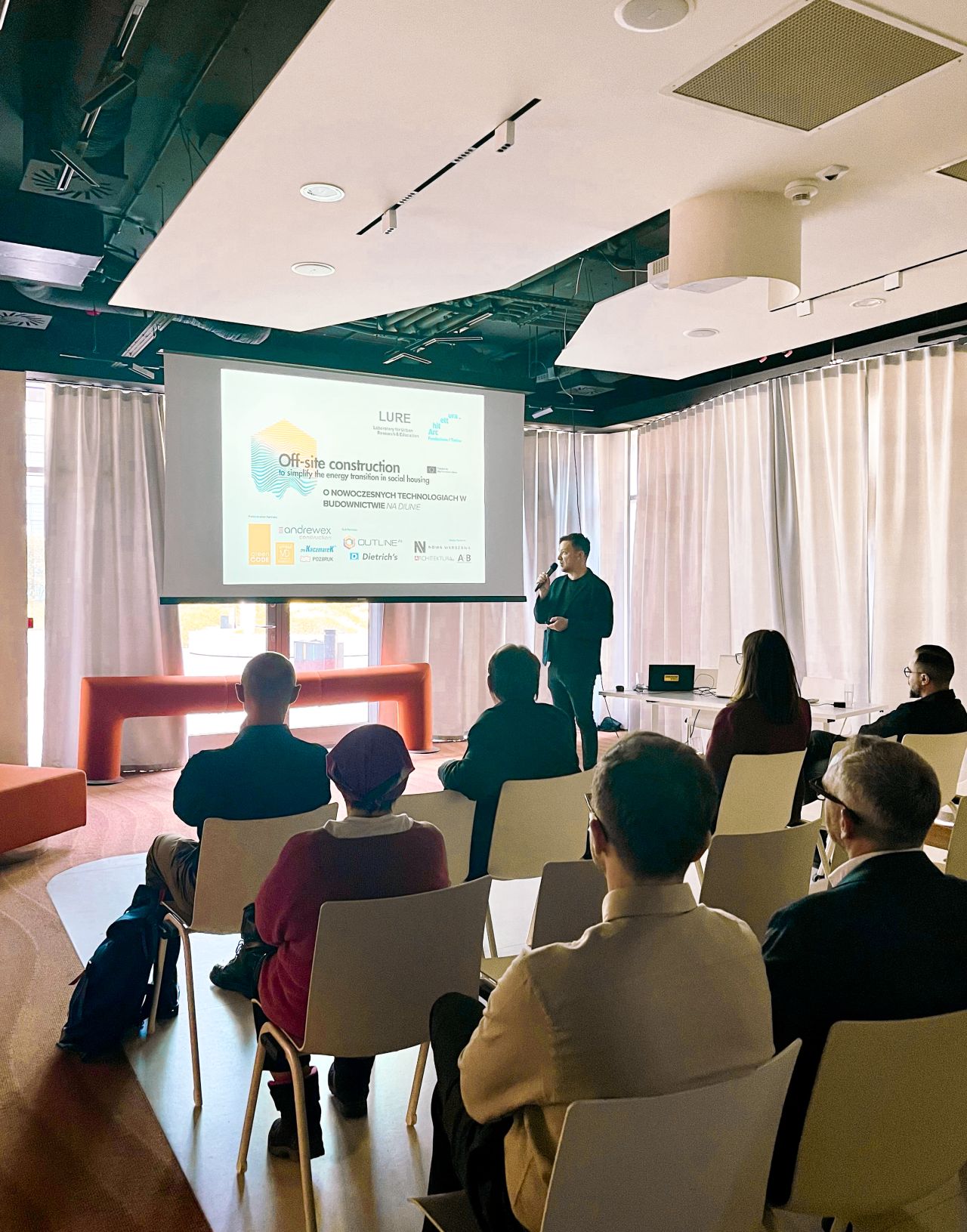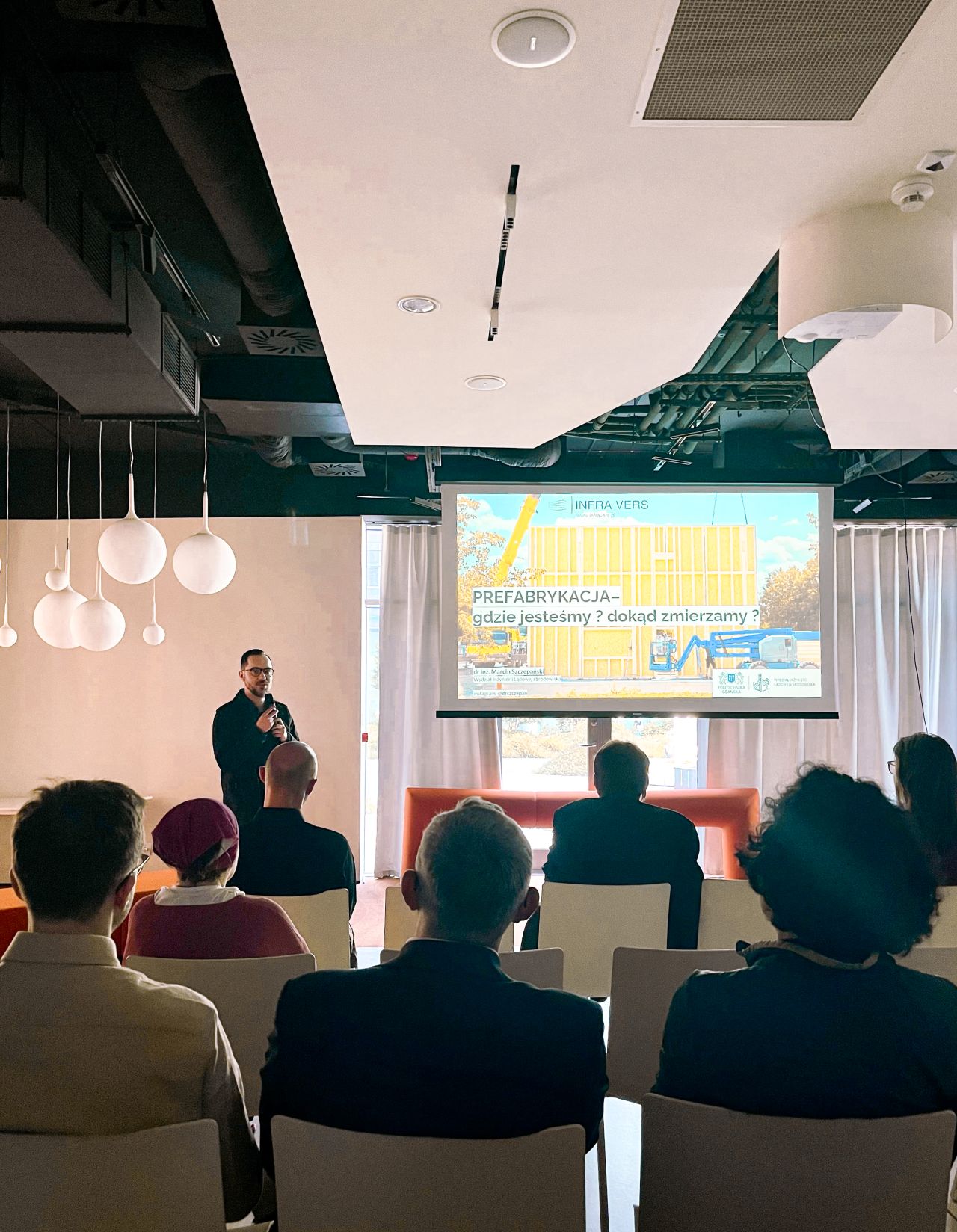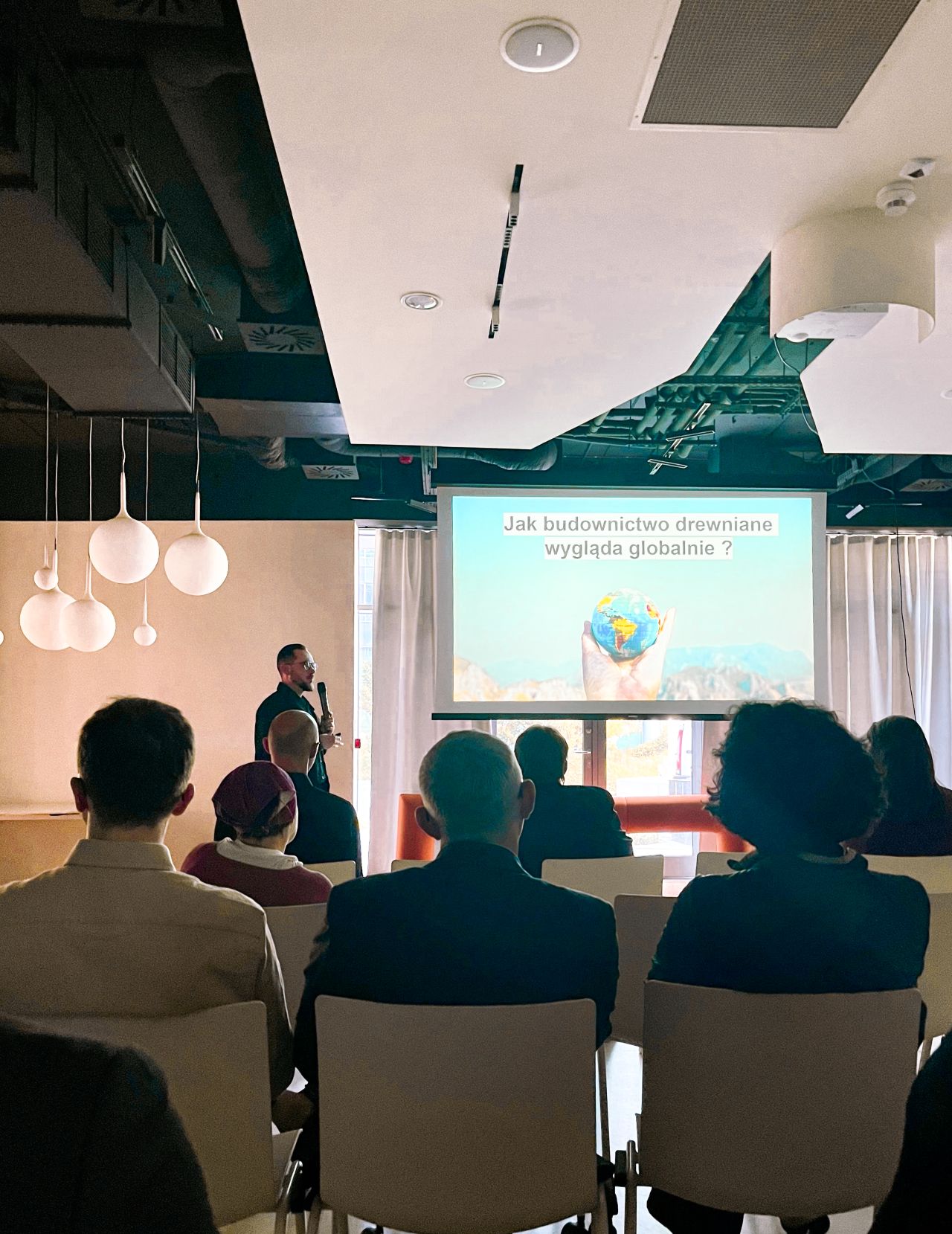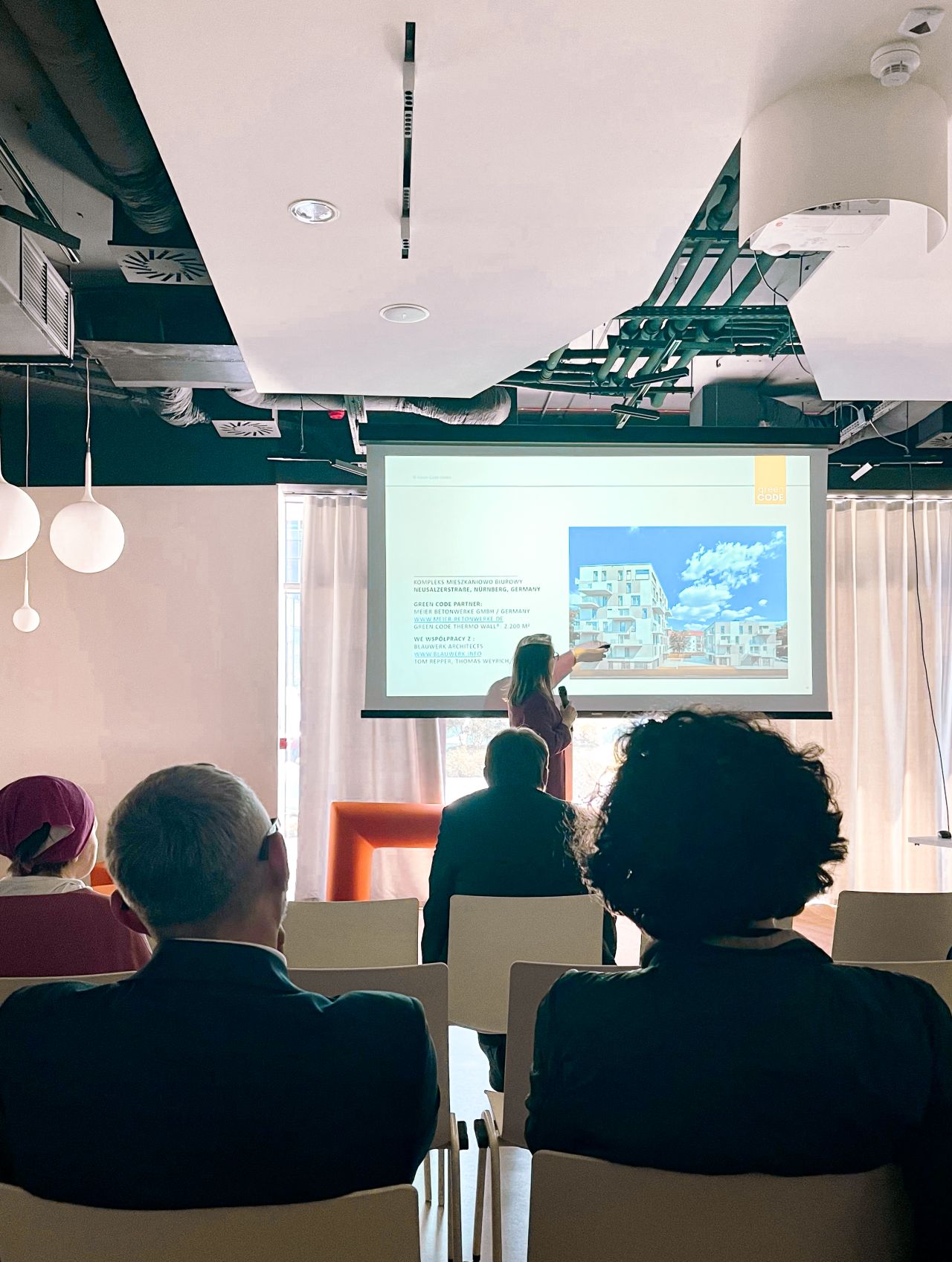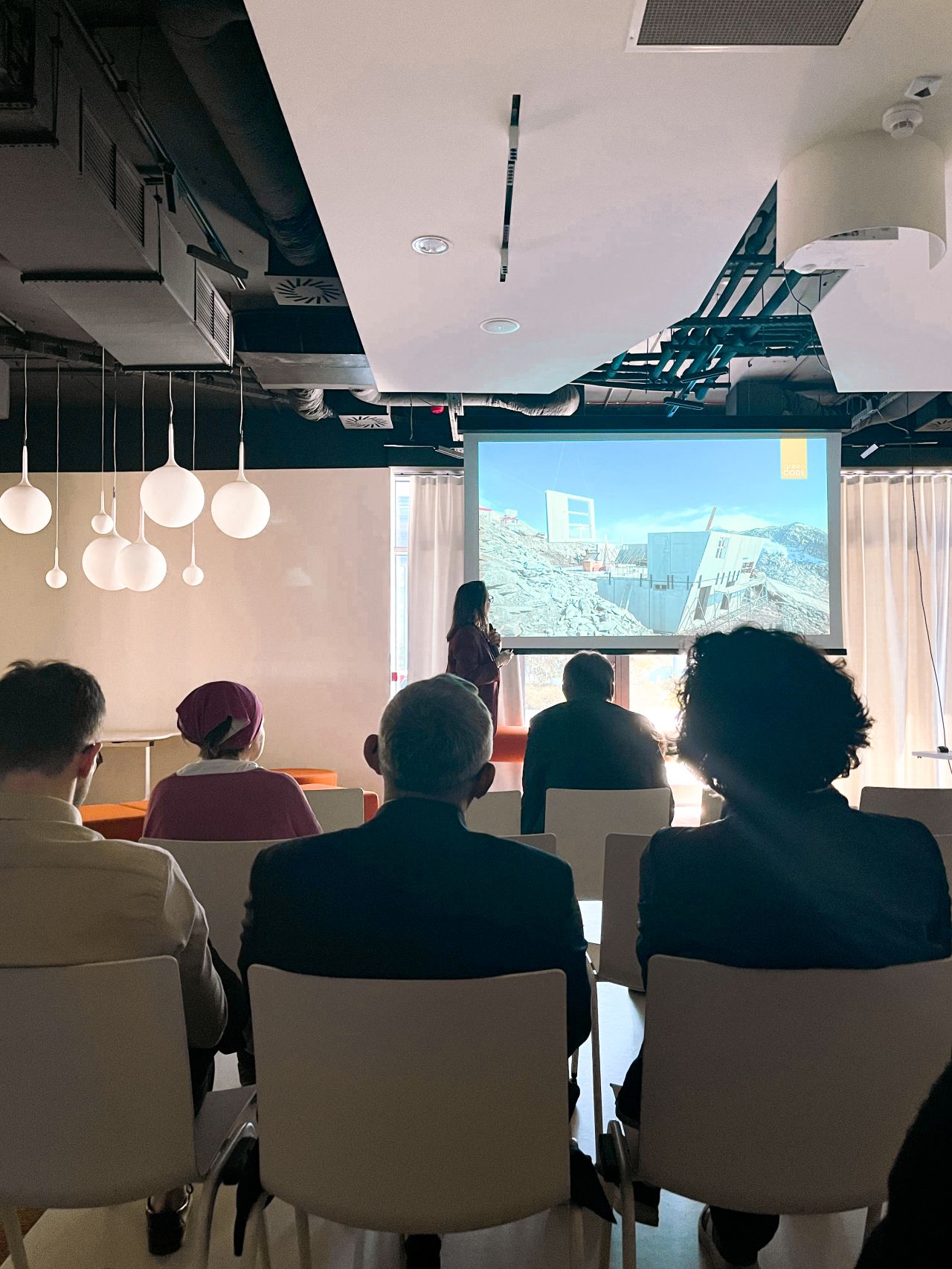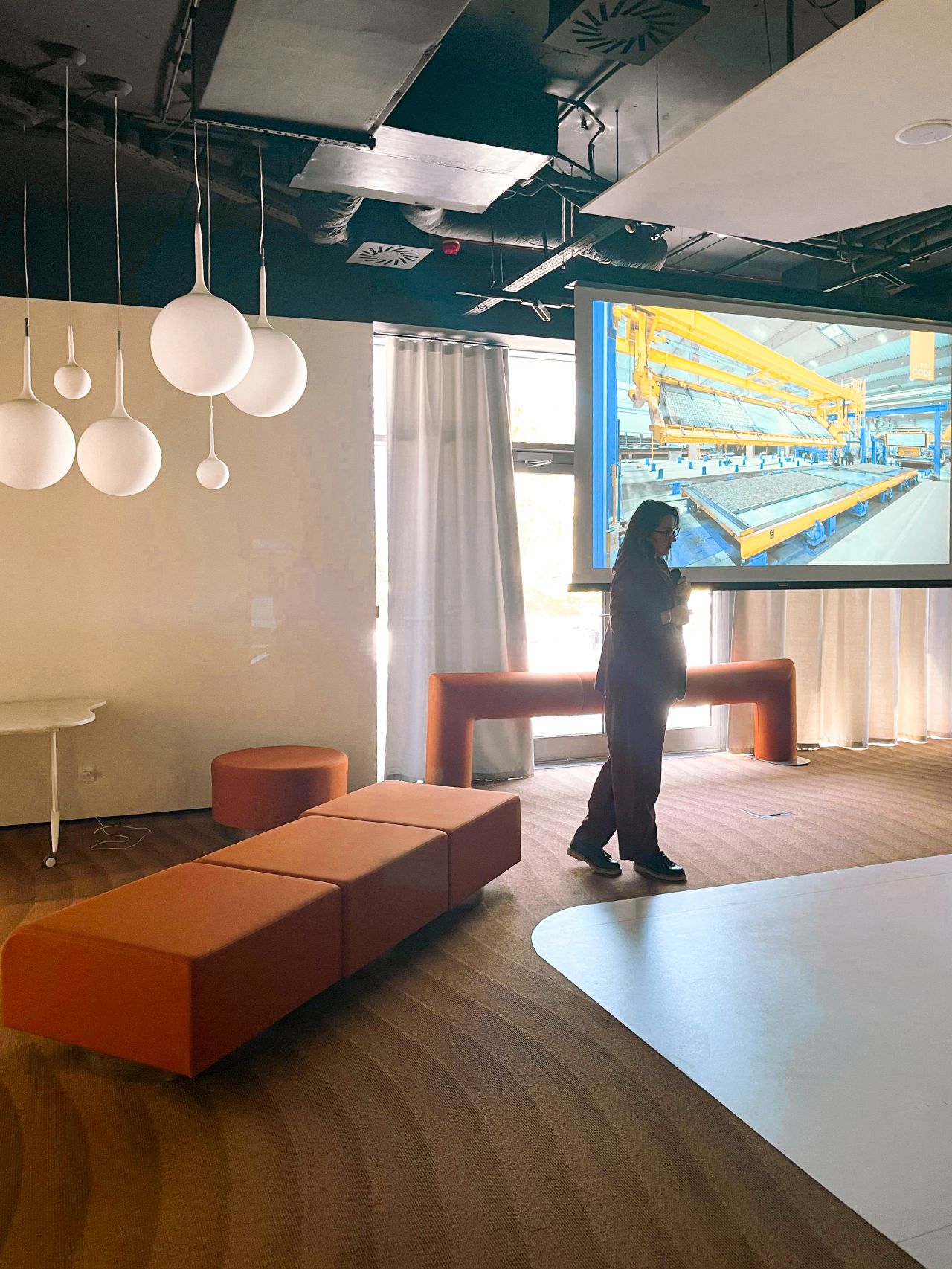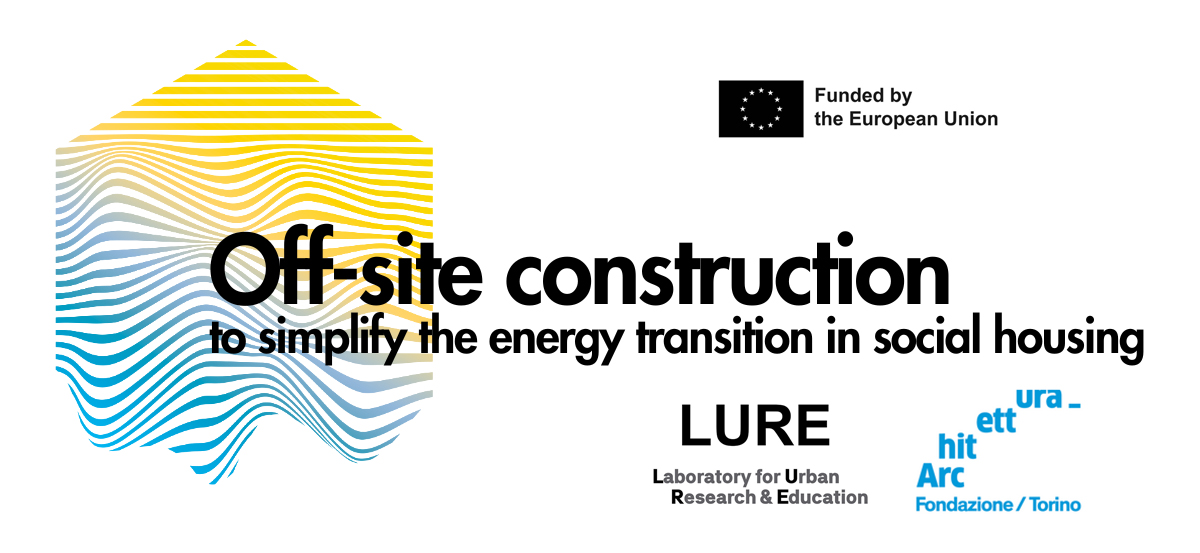
This website presents the results of the project “Off-site Construction to Simplify the Energy Transition in Social Housing”, carried out by the Laboratory for Urban Research & Education (LURE) and Fondazione per l’architettura / Torino, and funded by the European Union under the Vocational Training Partnership KA210-VET (Erasmus⁺) programme. It now serves as an open forum where everyone is invited to share their thoughts and reflections on the topic.
The project was developed in response to the growing scarcity of resources and the urgent need to rethink the way we live. As environmental concerns increasingly shaped European policies, the construction sector was called upon to adopt sustainable technologies and reduce its environmental impact—especially in the case of social housing, where energy poverty is widespread.
At the same time, many European countries are experiencing a housing crisis, driven by the rising cost of living and a shortage of affordable homes. This dual challenge—ecological transition and the future of social housing—formed the basis of the project’s research.
Through a collaborative process, the project explored the potential of off-site construction as a solution for both retrofitting and building new social housing. It proposed a shift in the construction paradigm by fostering new skills, professions, and roles, tailored to address ongoing resource scarcity and demographic trends such as ageing populations and increasing life expectancy.
The project successfully trained young architects, helping them adapt to the evolving needs of the construction industry. It strengthened off-site construction knowledge in both Italy and Poland, thereby accelerating the green transition in the social housing sector—where decarbonisation and energy efficiency are most urgently needed.
By analysing best practices and case studies, the project identified and designed new transnational training content and professional tools. These empower architects to work more effectively with off-site technologies, integrating digital and collaborative methods with high-performance, sustainable materials.
As a result of this process, a professional community was formed that has and will:
- Exchange good practices for off-site architecture in social housing;
- Promote the broader adoption of off-site construction in Europe;
- Advance digitalisation in construction through tools like BIM, 3D printing and AI;
- Support the green and digital transition by demonstrating that off-site construction is a sustainable and inclusive solution for the future of social housing.
We invite you to explore this site, engage with its content, and share your perspective—because building the future of housing is a collective effort.
OVERVIEW OF THE EXECUTED PROGRAMME
The full program of "Off-site Construction" included four days of training with talks, workshops and site visits split between Turin and Warsaw.
We have organised two open calls for participating architects on a national scale in first Italy and later Poland. 10 practicioners from each country were selected forming a group of 20 participants in total that came from different cities from both countries. They all were present on workshops, conferences and site visits.
For the events in Turin and Warsaw many other specialists, partners and guests came as they were open and acessible to all.
Italian Participants:
Alberto Artuso, Martina Bertani, Samuel Contestabile, Roberto Carlucci, Alessia Copelli, Anna Claudia Dionne, Laura Muñoz Tascon, Fabio Vignolo, Lionella Piva, Silvia Porciatti.
Polish Participants:
Karol Wyrzykowski, Karolina Dziengo, Barbara Michalska, Radosław Szafran, Dagmara Zarnowiec, Joanna Bokuniewicz, Michał Hondo, Magdalena Walczak, Łukasz Barej, Łukasz Gniewek, Małgorzata Lipień.
18th-19th October 2024 | Turin, Italy – Vocational training with conferences, construction site visits and workshop scenario
Photo credits: Jana Sebestova
TURIN / On October 18–19, we kicked off the project “Off-site construction to simplify the energy transition in social housing” in Turin. It was the first step of a broader journey exploring how off-site construction has evolved – past, present and future – in the context of social housing.
This first chapter gave an overview of the European situation, with a closer look at Italy, especially Turin and Milan, where the debate is more active and there are more concrete proposals. The training involved several local guests with international experience and diverse backgrounds – from academia, public administration, and business – offering a well-rounded and up-to-date perspective on off-site construction for social housing
21st -22nd February 2025 | Warsaw and Torun, Poland – Vocational training with a conference, construction site & factory visit, and a workshop
Photo credits: MOD21
WARSAW / From February 21–23, we continued our journey in Warsaw and toru where we explored how new technologies can drive the energy transition in social housing. We discussed innovative ways to boost energy efficiency and cut environmental impact in the sector.
Talks focused on wood, steel and concrete off-site systems, 3D printing, and advanced prefabrication. One key point was the need for supportive policies and funding – especially through EU programmes – to make these solutions more widespread. We also looked at how countries like Italy and Poland can learn from each other, adapting technologies and strategies to their own context.
We also visited the MOD21 showroom to see prefab housing modules in action. These flexible, high-tech units can be used for everything from homes to offices to healthcare spaces.
3rd April 2025 | Turin, Italy – Public dissemination event with local experts and stakeholders
Photo credits: Marco Campeotto
DISSEMINATION EVENT – ITALIAN EDITION / The final event took place on April 3 at the Sella Open Innovation Center Turin. It was a chance to reflect and share insights from the whole experience.
A key takeaway: off-site construction isn’t just a technological innovation – it can also be a powerful response to today’s social, demographic, and economic challenges.
From the debate, a picture emerged of three elements that will play a central role in the coming years in reaching the net zero targets: the market, People and the State.
The event was attended by local experts and stakeholders -from academics, public administration and entreprises representiation- who engaged in a round table discussion to discuss the socio-economic, demographic and technical challenges and opportunities of the off-site construction site. It emerged how important it is to think about not reaping immediate benefits but to invest in a patient transition from being profit oriented to mission oriented.
30th May 2025 | Warsaw , Poland – Public dissemination event with local experts and stakeholders:
Photo credits: Architektura-Murator
DISSEMINATION EVENT – POLISH EDITION / On May 30 2025, a unique conference on innovation in prefabrication and digital technologies for energy transition was held at the DIUNA office park in Warsaw. The event aimed to spark a national-level dialogue on the future of prefabrication in Poland’s construction industry.
The event delves into how digital and automated solutions are reshaping modern construction and prefabrication. While these innovations hold significant promise—and are supported by funding opportunities and environmental incentives—prefabrication remains underused in regions such as Poland. This limited adoption stems from persistent systemic inefficiencies, poor data integration, and a general lack of awareness among key stakeholders, including architects and investors. The presentation also underscores the fast-paced advancement of cutting-edge software tools especially BIM and AI. It brought together experts, architects, engineers and innovators united by a common goal: building in smarter, more sustainable, and more energy-efficient ways.
For more details on the research results - download the reports in section of the website LEARN
Funded by the European Union. Views and opinions expressed are however those of the author(s) only and do not necessarily reflect those of the European Union or the European Education and Culture Executive Agency (EACEA). Neither the European Union nor EACEA can be held responsible for them.
SPONSOR:
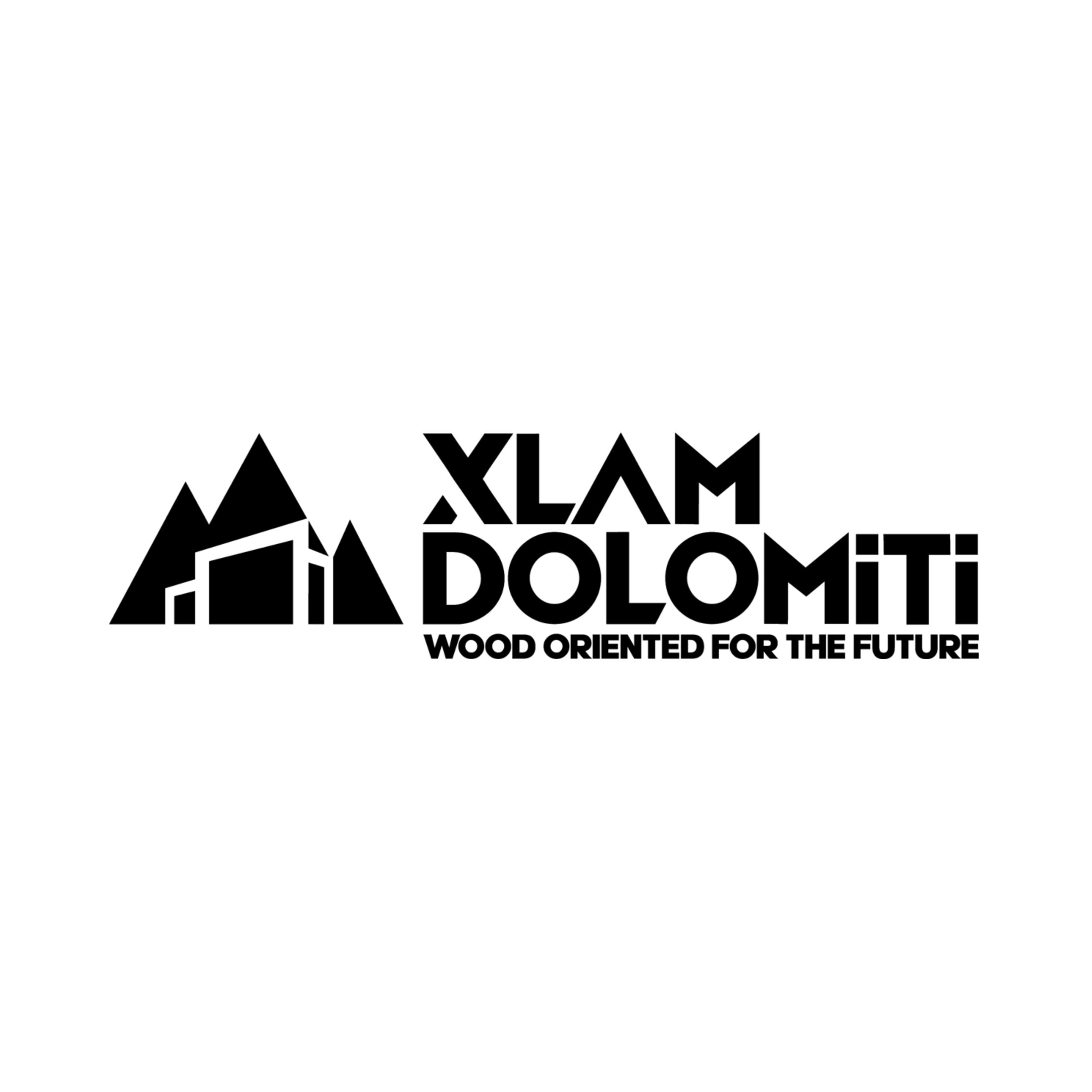
SUPPORT & PATRONAGE:


